From soldier to worker
Police

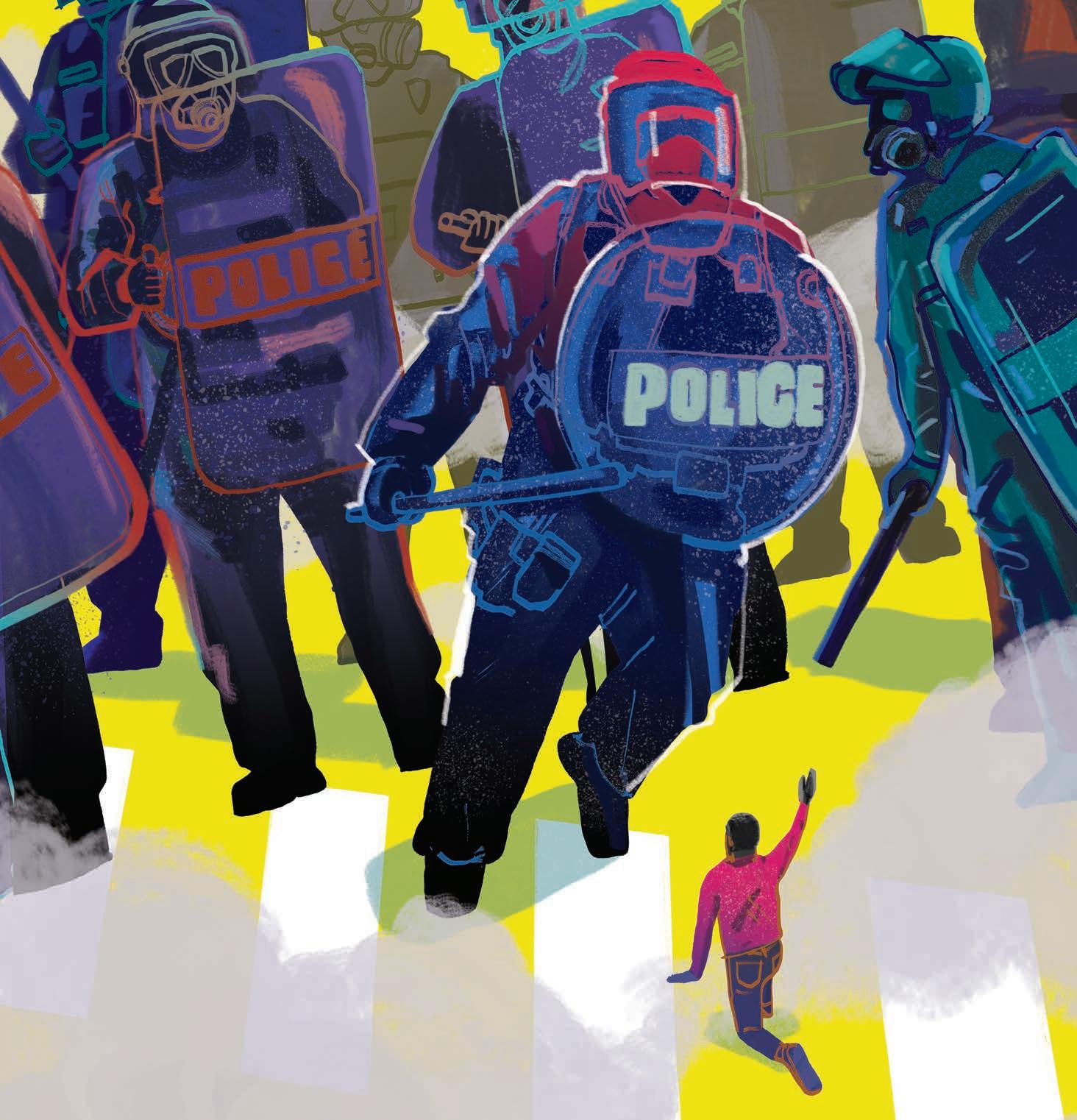 BY MAYA DUKMASOVA
BY MAYA DUKMASOVA
CHICAGO’S FREE WEEKLY SINCE 1971 | JUNE 11, 2020 TK TK 00
unions were born of resistance to discipline for brutality. Do they belong in the labor movement?
10
CHICAGO READER | JUNE 11, 2020 | VOLUME 49, NUMBER 36
10 Dukmasova | Labor Police unions were born of resistance to discipline for brutality. Do they belong in the labor movement?
13 Photo Scenes from a protest where cops shot pepper spray into a kettled crowd.
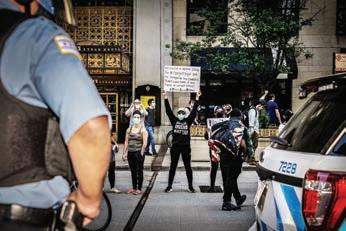
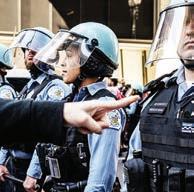
Hours Festival pairs playwrights and performers.
FILM
22 Outdoor Screenings Chicago Drive-In opens in Bridgeview.
the huge scene-defining parties he helped throw as a teenager.
35 Early Warnings Rescheduled concerts and other updated listings
Gossip Wolf Wyatt Waddell drops a single to rally the fighters for Black lives, Femdot’s nonprofit begins free food deliveries on the south and west sides, and Nnamdï gives away more than $10,000 in “Bandcamp day” revenue.
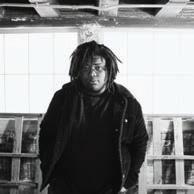
FOOD & DRINK
03 Key Ingredient: Pandemic
Pantry Brian Jupiter turns dry-ass chicken breast into the ultimate protein ball.

14 The New Normal A comic on what the a ermath of coronavirus will bring for Chicago’s small businesses

17 Rest Uneasy Your wildest dreams and odd sleep patterns during the pandemic, explained
ARTS & CULTURE
25 Movies of Note The Hill of Freedom is fueled by candid conversations and leisurely meals; Shirley is not so much a biopic as a fanciful evocation of its complex subject; and Mr. Topaze, Peter Sellers’s first directorial endeavor, is a minor effort that might appeal to his devotees.
NEWS & POLITICS
05 Art A tribute to George Floyd by Isabella Scott
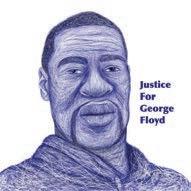
06 Joravsky | Politics Telling it like it is about race to the NFL, ESPN, and the Bears
08 Isaacs | Culture At Saint Xavier University, a faculty union vanishes and COVID-19 is the official excuse.
18 Lit The Chicago Poetry Center gives CPS students virtual literary lessons.
19 Visual Art Conceptual artist Nate Young’s “The Transcendence of Time” puts his own family’s Great Migration story on display.
THEATER
20 Virtual Festival Prop’s Small
MUSIC & NIGHTLIFE
26 Feature On Fantasize Your Ghost, Ohmme make their music a place of trust, discovery, and compassion.
30 Records of Note A pandemic can’t stop the flow of great music. Our critics review releases that you can enjoy at home.
34 #ChiMusic35 House-music pioneer Vince Lawrence remembers
OPINION
Savage Love Dan Savage offers advice on lurking and sex buddies during a pandemic.

CLASSIFIEDS
ON THE COVER: ILLUSTRATION BY NGUYEN TRAN. FOR MORE OF TRAN’S WORK, GO TO LEFTSTUDIO.COM
TO CONTACT ANY READER EMPLOYEE, E-MAIL: (FIRST INITIAL)(LAST NAME) @CHICAGOREADER.COM
PUBLISHER TRACY BAIM EDITORS IN CHIEF SUJAY KUMAR, KAREN HAWKINS CREATIVE LEAD RACHEL HAWLEY MUSIC EDITOR PHILIP MONTORO THEATER AND DANCE EDITOR KERRY REID CULTURE EDITOR BRIANNA WELLEN ASSOCIATE EDITOR JAMIE LUDWIG
SENIOR WRITERS MAYA DUKMASOVA, LEOR GALIL, DEANNA ISAACS, BEN JORAVSKY, MIKE SULA EDITORIAL ASSOCIATE S. NICOLE LANE GRAPHIC DESIGNER AMBER HUFF LISTINGS COORDINATOR SALEM COLLO-JULIN CONTRIBUTORS ED BLAIR, NOAH BERLATSKY, LUCA CIMARUSTI, MARISSA DE LA CERDA, MARI COHEN, JOSH FLANDERS, SHERI FLANDERS, JACK HELBIG, IRENE HSAIO, CATALINA MARIA JOHNSON, MONICA KENDRICK, STEVE KRAKOW, NOËLLE D. LILLEY, JAMIE LUDWIG, MAX MALLER, ADAM MULLINS-KHATIB, J.R. NELSON, JEFF NICHOLS, MARISSA OBERLANDER, MATTHEW SIGUR, CATEY SULLIVAN
DIRECTOR OF DIGITAL JOHN DUNLEVY SOCIAL MEDIA COORDINATOR JANAYA GREENE STAFF AND SPECIAL PROJECTS ASSISTANT TARYN ALLEN
STRATEGIC INNOVATION DIRECTOR MARIAH NEUROTH DEVELOPMENT DIRECTOR COLETTE WILLARD MEDIA PARTNERSHIPS COORDINATOR YAZMIN DOMINGUEZ EXECUTIVE ASSISTANT SANDRA L. KLEIN SPECIAL EVENTS CONSULTANT KRISTEN KAZA
ADVERTISING
312-392-2970, ADS@CHICAGOREADER.COM
CLASSIFIEDS: CLASSIFIED-ADS@CHICAGOREADER.COM
VICE PRESIDENT OF SALES AMY MATHENY
RELATIONSHIP MANAGER TED PIEKARZ SENIOR
REPRESENTATIVES
LENI MANAA-HOPPENWORTH, LISA SOLOMON
NATIONAL
ROGERS
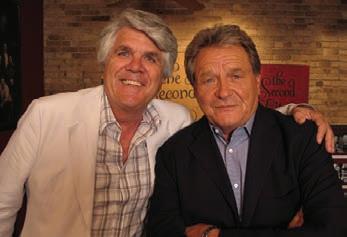
2 CHICAGO READER - JUNE 11, 2020 ll
35
36
38 Jobs 38 Apartments & Spaces 38 Marketplace THIS WEEK
IN THIS ISSUE
CLIENT
ACCOUNT
CLASSIFIED SALES MANAGER WILL
ADVERTISING VOICE MEDIA GROUP 1-888-278-9866 VMGADVERTISING.COM JOE LARKIN AND SUE BELAIR DISTRIBUTION CONCERNS distributionissues@chicagoreader.com 312-392-2970 CHICAGO READER L3C BOARD PRESIDENT DOROTHY R. LEAVELL TREASURER EILEEN RHODES SECRETARY JESSICA STITES AT-LARGE SLADJANA VUCKOVIC CONSULTANT CAROL E. BELL READER (ISSN 1096-6919) IS PUBLISHED WEEKLY BY CHICAGO READER L3C 2930 S. MICHIGAN, SUITE 102 CHICAGO, IL 60616 312-392-2934, CHICAGOREADER.COM COPYRIGHT © 2020 CHICAGO READER PERIODICAL POSTAGE PAID AT CHICAGO, IL ALL RIGHTS RESERVED. CHICAGO READER, READER, AND REVERSED R: REGISTERED TRADEMARKS ® THIS WEEK ON CHICAGOREADER.COM Open your wallet A guide to donating money to fight white supremacy and police brutality Alexander out at Second City In the wake of backlash on institutional racism, the longtime owner announces his departure. The day of an ICU nurse “I listen to his lungs. They sound like a washing machine, junky and wet.”
Brian Jupiter turns dry-ass chicken breast into the ultimate protein ball

Chef Jup needs fuel.
By MIKE SULA

Key Ingredient was a multimedia cooking series produced by then-Reader staffer Julia Thiel and food writer/filmmaker Michael Gebert from 2010-2018 in which Chicago’s baddest chefs challenged their colleagues to redeem unusual, underappreciated, or often abhorrent ingredients by showcasing them in beautiful plated dishes that might or might not have been edible.
At the prompting of Funkenhausen chef Mark Steuer, we’re rebooting the series, pandemic-cooking-style.





The chef: Brian Jupiter, Ina Mae Tavern, Frontier
The challenger : Erick Williams, Virtue










The ingredient: dry-ass chicken breast
“We always have some leftover chicken,” says Brian Jupiter, who’s been frying plenty of it at Ina Mae Tavern throughout the pandemic.
So he was unfazed when Virtue’s Erick Williams challenged him with “dry-ass chicken breast.” “The first thing you’re trying to do is add some sauce to it,” Jupiter says. “That’s the easy way out.”





Jupiter has been hustling takeout and delivery at both Frontier and Ina Mae (the sno-ball window is open!), teaching virtual cooking classes, as well as cooking 1,000 meals a week for those in need via the Power of 10 Initiative—




JUNE 11, 2020 - CHICAGO READER 3 FOOD & DRINK Ground
chuck and
quinoa save the day. C|LOUISE PR AND MARKETING
KEY INGREDIENT: PANDEMIC PANTRY
Restaurant
IMPORTS & DOMESTICS ‘17 Honda CR-V LX AWD ................Automatic, Full Power, White, 24205A ....$17,995 ‘17 VW Passat 1.8T SE AWD..............Auto., Leather Sunroof, Grey, 6485A ....$14,995 ‘16 Honda Fit EX ........................Automatic, Moonroof, 13K, Black, 24485A ....$13,995 ‘17 Hyundai Elantra Value Ed. ......Automatic, Blind Spot, Black, 24367A ....$12,995 ‘12 Acura TL w/Tech/Navi/ ..............Leather, Moonroof, Black, 24284A ....$11,995 ‘13 Hyundai Sante Fe 2.0T AWD .. Automatic, Full Power, Black 23373B ....$11,995 ‘14 Buick Encore ....................Automatic, 1-Owner, 42K, Ruby Red, 23690A ....$10,995 ‘11 Honda CRV EX AWD ......................Automatic, Sunroof, Silver, 24311A ......$9,995 ‘15 Kia Soul ............................................Manual, Full Power, Alien2, 21917A ......$7,995 ‘13 Hyundai Tucson GLS ..............Automatic, Full Power, Bronze, 24460A ......$6,995 SUBARU FORESTERS ‘16 Forester Touring ..........Automatic Sunroof, Leather, Silver, 23651A ....$18,995 ‘17 Forester Ltd. ..................Automatic Sunroof, Leather, Silver, 24102A ....$17,995 ‘16 Forester Prem. ......Automatic, Sunroof, Heated Seats, Red, 24456A ....$16,995 ‘14 Forester Prem. ..Automatic, Sunroof, Heated Seats, White, 24116A ....$13,995 SUBARU OUTBACKS / ASCENT / CROSSTREK ‘19 Ascent ............................ 8 Passenger, Sunroof, Eyesight, 4K, Grey, P6528 ....$25,995 ‘16 Outback Prem. Automatic, All Weather, Alloys, Black, 24117A ....$17,995 ‘16 Legacy 3.6R Ltd./Navi. ..............Automatic, Full Power, Blue, 24428A ....$15,995 ‘17 Crosstrek Ltd.. .................... Automatic, Leather, Sunroof, White, 34321A ....$19,995 ‘16 Crosstrek Prem. .............. Automatic, All-Weather, Hyper Blue, 24275A9 ....$15,995 EvanstonSubaru.com 3340 OAKTON - SKOKIE • 847-869-5700 A+ RATED TOP-QUALITY INSPECTED USED CARS & SUV’ S *Add tax, title license and $300 doc fee. 0% financing for 63 months. Monthly payment of $15.87 per $1,000 borrowed.Finance on approved credit score Subject to vehicle insurance and availability. Ends 7/3/2020 When A Great Deal Matters, Shop Rob Paddor’s... Voted “Best Auto DeAlership ” By CHICAGO Voters’ Poll 2019 Evanston Subaru in Skokie 0% 0% 0% 0% FORESTER ASCENTOUTBACK IMPREZA 0% 63 MONTHS Monday-Friday Monday-Friday Saturday Saturday 9:00AM-8:00PM 9:00AM-6:00PM OUR SHOWROOM IS OPEN! NO APPOINTMENTS ARE NEEDED WELCOME BACK DEALS! GRAND Social Distancing & Face Masks will be Required for all Customers and Employees APPOINTMENT REQUIRED NO REOPENING FRONTIER 1072 N. Milwaukee 773 772 4322 thefrontierchicago.com
continued from 3
and somehow finds the time once or twice a day to take Muay Thai kickboxing classes via Zoom.

“I’ve been eating a ton of protein,” he says. “Every way I can get it.” He needs more gas in the tank than mere dry-ass chicken breast can provide. That’s why he threw ground chuck at it, contributing fat and moisture, and the “ultimate protein ball” was born.
Jupiter shredded the chicken, crust and all, but added ancient grains to the mix instead of breadcrumbs. “Quinoa is a new friend of mine,” he says. He tossed onion, garlic, grated parmesan, parsley, thyme, salt, pepper, Cajun seasoning, and an egg into the mix, and deep fried the balls until crispy and—well, what the hell—doused them in barbecue sauce.
He gives the rest of us permission to panfry, but he doesn’t have time for that. On Friday he reopened the beer garden and patio at Frontier, with a limited menu of smoked and grilled meats, sides, and a full bar. Ina Mae opened its patio last Wednesday, serving up po’ boys, seafood towers, and beignets just days after opportunists popped o up and down Milwaukee Avenue in Wicker Park.
“It got a little bit crazy,” he says. “But I definitely keep moving. I need that. I don’t like to sit still. You gotta fight to keep stu going.” v
Who’s next: Lee Wolen, of Boka and Somerset, whose challenge is chicken gizzards. Wolen just opened GG’s Chicken Shop in Revival Food Hall, serving rotisserie chicken and fried chick-
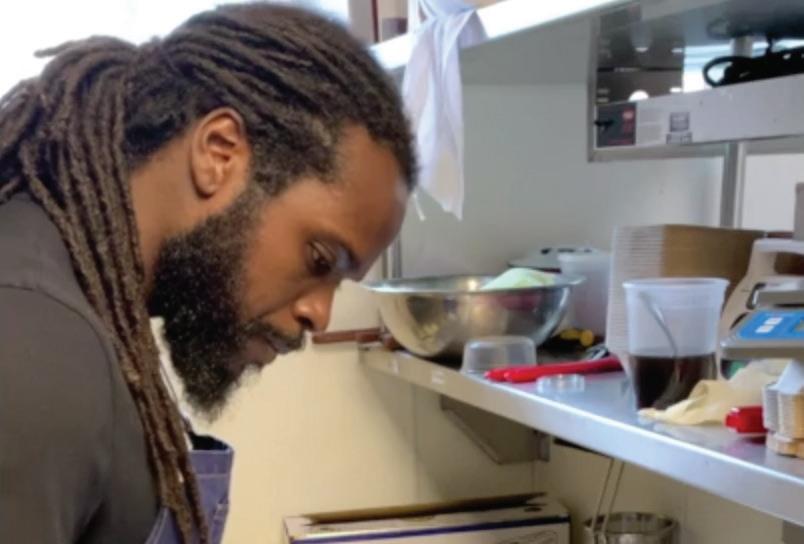
en sandwiches.
“I always give him shit,” says Jupiter. “‘You stick with all the fancy stu . Let me cook the fried chicken.’” For that, Wolen must redeem the yardbird’s muscular gastric mill, a notoriously tough nugget that it uses to grind its food.
“Gizzards are tricky,” says Jupiter. “You can screw them up really easily. I think the biggest mistake you can make is throw them in some chicken dredge and fry them up.”
Kinda sticks in your craw, doesn’t it, Wolen?

Chef Jup’s Protein-Packed Meatballs
1 pound ground beef ground chuck
1/2 pound dry-ass chicken breast, fried, left overnight, and shredded with batter
1 cup quinoa, cooked
1 teaspoon minced garlic
1/4 cup chopped parsley
1 teaspoon chopped thyme
1/4 cup grated parmesan
1/4 cup onion
1 egg
Cajun seasoning to taste
Salt and pepper to taste
Combine all ingredients in a bowl, and mix gently. Form into meatballs. In an oiled skillet, panfry over medium-high heat until evenly browned and crispy. Serve with barbecue sauce.
@MikeSula

4 CHICAGO READER - JUNE 11, 2020 ll
FOOD & DRINK
Chef Jup C|LOUISE PR AND MARKETING
INA MAE TAVERN & PACKAGED GOODS 1415 N. Wood 773 360 8320 inamaetavern.com Office and Artist Studios for Lease Bridgeport Art Center 1200 W. 35th Street, Chicago IL 60609 For rental information please call Michelle at 773.843.9000 Chicago's Free Weekly Since 1971 We Couldn't Be Free Without You— Support Community Journalism
Illustration by Isabella Scott THEARTBYIZZIE
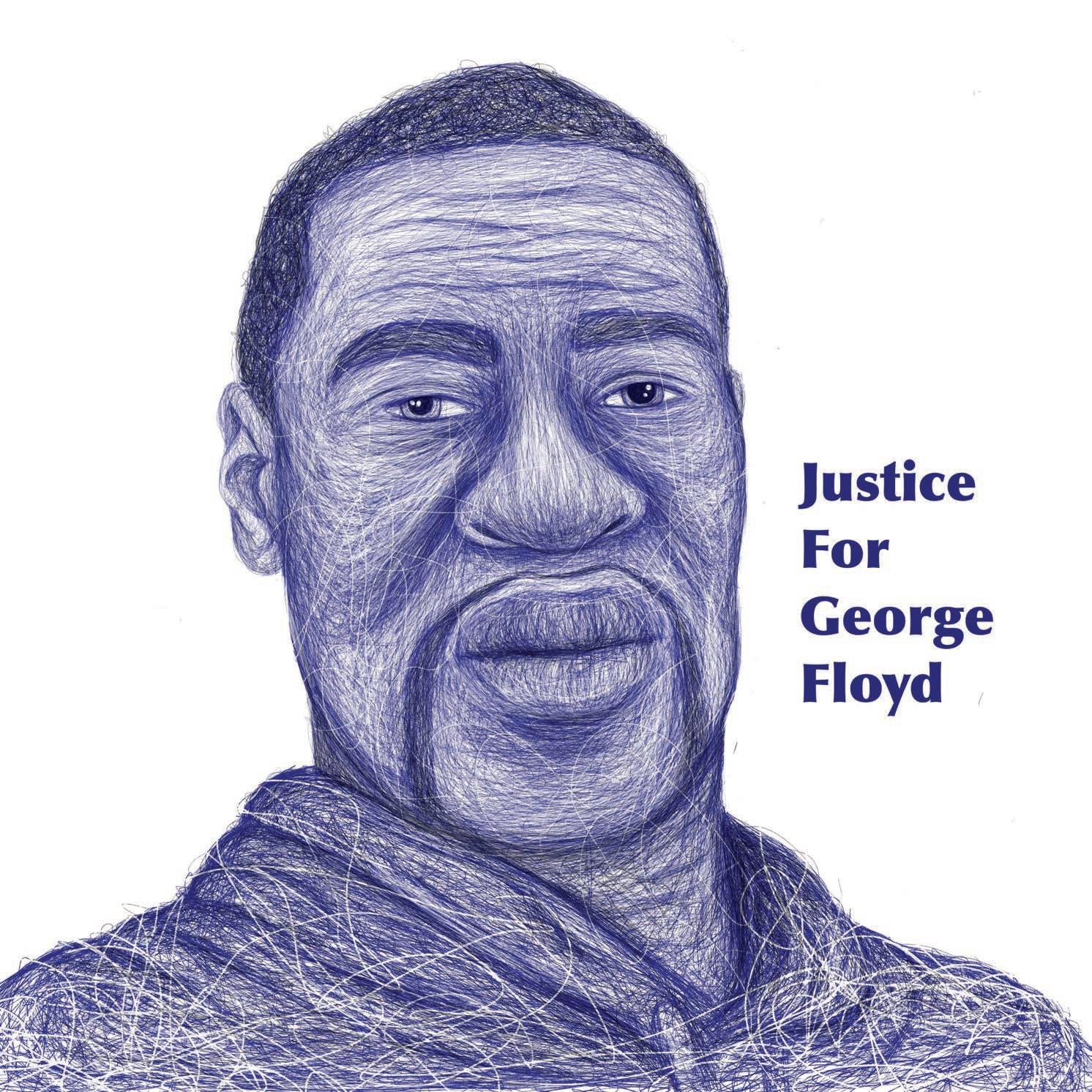
JUNE 11, 2020 - CHICAGO READER 5
NEWS & POLITICS











 By BEN JORAVSKY
By BEN JORAVSKY




If you want to understand another way in which George Floyd’s murder has upended our world, consider that the loudest, boldest voice in Chicago sports once belonged to Mike Ditka, former coach of the Bears.
At least when it came to speaking his mind about politics.
A lot of younger readers may not know much about Ditka, who has stepped back from the limelight in recent years. He was, among other things, a great football player, a mediocre coach, and a raging right-wing windbag.
Ditka turned his everyman image into a brand, making millions pitching everything from Campbell’s Chunky Soup to Levitra, an erectile dysfunction drug.


Over the years, I watched in amazement— not knowing whether to laugh or cry—as Ditka maintained his commercial endorsements, radio show, and TV talking head gigs, all while freely mouthing whatever boneheaded notion popped into his brain. Like . . .


“There has been no oppression in the last 100 years that I know of.”






And . . .
“If you don’t like the way that our democracy was set up, haul your ass out of the country.”
And . . .




“Obama is the worst president we’ve ever had.”
In 2016, he endorsed Trump—naturally.
For my money, Ditka’s daffiest comment came in 1992, when he declared that electing Bill Clinton would be “the biggest step backward this country would take in 200 years of existence.”

Look, I’ve had my problems with Bill Clinton. But biggest step backward in the history of the USA? Ahead of slavery? The Civil War? The founding of the KKK? The Great Depression? Pearl Harbor? The assassination of Dr. King? The Vietnam War? You get the idea—feel free to make your own list.

Now, imagine if you were a Black player on
























6 CHICAGO READER - JUNE 11, 2020 ll
POLITICS Telling it like it is Are you listening, NFL, ESPN, and the Bears?
Due to business closings and for safety purposes, the Chicago Reader is going biweekly with a print run to 600+ locations, including our box route. On the o� weeks (June 4, June 18) the Reader is just being distributed as a free PDF, with a small press run to fulfill subscriber and library mailings. We are also making a limited number of copies available for special short-term subscriptions, 12 weeks for $50, and every week’s issue will be mailed to your home. Just a few hundred copies will be sold of these very limited souvenir editions of the Reader: secure.actblue.com/donate/chicago-reader-print-12 Important Reader News Thank you, The Reader team Find the full curated PDF download of the Reader at by Wednesday each week. chicagoreader.com/issues
NFL commissioner Roger Goodell now says the league was wrong for not listening to Black players earlier. TEDDY WADE / U.S. DEFENSE DEPARTMENT
the Bears when Ditka made that comment. You may not have liked it. But, most likely, you kept your mouth shut. ’Cause back then if a Black football player were to challenge Mike Ditka, he’d probably be labelled a troublemaker and ushered out of the game.
Like Craig Hodges was ushered out of basketball for daring to raise the concerns of Black America to the first President Bush—another story for another time.
In short, the NFL faces a challenge. At least 70 percent of its players are Black. But many football fans are of the MAGA-hat persuasion. So how do you employ the best Black players without losing the most bigoted of white fans?
To help in this effort, ESPN brought in Hank Williams Jr. to sing the opening song for Monday Night Football
Williams may even be to the right of Ditka. His most infamous moment came during a 2011 appearance on Fox News when he likened President Obama to Hitler.
You know, there’s just something about Obama that brings out the worst in MAGA hatters—wonder what that could be.
Anyway, Williams and Fox host Gretchen Carlson had the following exchange . . .
Carlson: You used the name of one of the most hated people in all the world to describe, I think, the president.
Williams: That’s true. But I’m telling you like it is.
Concerned about the fallout, ESPN removed Williams and his song from Monday Night Football . Defiantly unapologetic, Williams responded by writing “Keep the Change,” in which he sang: “This country’s sure as hell been goin’ down the drain.”
’Cause what kind of country is it when you can’t compare a moderate Democrat to a mass murderer!
Wait, the Williams / ESPN saga is not over.
In 2017, as Trump fired up his MAGA nation against Colin Kaepernick, ESPN returned Williams and his song to the opening of Monday Night Football
So, follow me on this . . .
Kaepernick gets banished from football— couldn’t even get a tryout—for peacefully protesting against police brutality.
Meanwhile, it’s Welcome Back, Kotter to Hank “Obama is Hitler” Williams—no apologies required.
In my opinion, that was ESPN’s way of
assuring MAGA—as Trump refers to his followers—that they have nothing to fear as those knee-taking Black troublemakers have been removed and Hank Williams Jr. has been returned.
Well, I’m happy to report that “the troublemakers” are back!
In the last few days, some of the game’s biggest Black stars—including quarterback Patrick Mahomes—made a video in which they declared they “will not be silenced.” They demanded that the NFL condemn “racism and the systemic oppression of Black people” and admit that it “was wrong in silencing our players from peacefully protesting.”
Almost immediately, NFL commissioner Roger Goodell responded with a video in which he said “we were wrong for not listening to NFL players earlier, and encourage all to speak out and peacefully protest.”
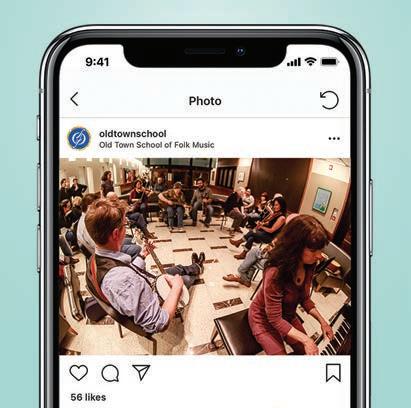
Other white players and coaches are making a similar pledge.
After saying that “it was o ensive to kneel during the national anthem,” New Orleans quarterback Drew Brees profusely apologized.
After saying the NFL’s a “meritocracy—you earn what you get” and “I don’t see racism at all in the NFL,” Denver coach Vic Fangio also apologized and joined a Black Lives Matter march.
So far, no reports of Ditka joining a march. And we’ll have to see if ESPN continues to have Williams open its show.
Having mentioned Mahomes—the greatest young quarterback in the game—I must point out that the Bears, who desperately need a quarterback, could have taken him in the 2017 draft. Instead, they decided it was a good idea to draft Mitch Trubisky, an exceedingly mediocre QB.
The Bears also passed on Deshaun Watson, another Black quarterback who, like Mahomes, is now one of the bright stars in the game.
The Bears general manager who took Trubisky over Mahomes and Watson is Ryan Pace. He still has his job—in case there’s anyone out there who really believes the NFL is a meritocracy.
That’s the same Ryan Pace who signed exceedingly bad white quarterback Mike Glennon over Kaepernick as a free agent in 2017, as I’ve discussed before.
You know, I’m starting to think Pace and the Bears would sign me before selecting a Black man to play quarterback.
Hope I’m not o ending anyone—just telling you like it is.
JUNE 11, 2020 - CHICAGO READER 7 NEWS & POLITICS
v @bennyjshow Stay Home. Stay Positive. Stay Connected. oldtownschool.org We can’t wait to get back to making music and dancing together at the Old Town School! In the meantime, many of our classes are currently running online, and we are actively working on more ways to keep you making music and learning new things with us, from home, in the near future. We are so thankful to be part of the wonderful and supportive arts community in Chicago and are especially thankful for all our dedicated students and teaching artists persevering with us during this time. For updates, rescheduled concert info, ways to help support our staff & more please visit oldtownschool.org/alert Stay safe, sane, and keep on playing from all of us at Old Town School of Folk Music!
HIGHER EDUCATION
At SXU, a faculty union vanishes
COVID-19 is just the official excuse.
By DEANNA ISAACS
COVID-19 has already provided the rationale for some previously unimaginable social changes, but here’s a new one: union busting.
On May 28, the administration at Saint Xavier University announced that it will no longer recognize its longtime faculty union. In a letter to faculty and sta , president Laurie M. Joyner and board chair Patricia A. Morris put it this way:

“As we emerge from the initial disruption of COVID-19 on our campus community, we must prepare for the economic and structural impact of the pandemic on higher education as well as longtime trends for universities. . . . To this end, the Board of Trustees has unanimously decided that Saint Xavier University will no longer recognize the Faculty A airs Committee as a collective bargaining unit e ective immediately.”
Presto: done. A simple, unilateral declaration—like a wand wave by the fairy godmother

of making unions vanish—and the Faculty A airs Committee (FAC), certified by the National Labor Relations Board in 1979, is gone.
In a statement released by the 140-member union, FAC chair Angelo Bonadonna says the faculty are facing “disenfranchisement” and “the complete degradation of our mission and values.”
How is that possible? The explanation has more to do with the separation of church and state than with COVID.
Saint Xavier is Chicago’s oldest college. Its roots go back to 1846, when the Sisters of Mercy established a “Female Academy” at what is now Michigan and Madison Street. By the mid-1950s, SXU was in its current location at 103rd Street and Central Park; it went coed in 1969, and—after recovering from financial difficulties a few years ago—serves about 3,000 undergrads and more than 600 graduate students.
The last faculty contract expired a year ago;
8 CHICAGO READER - JUNE 11, 2020 ll NEWS & POLITICS
negotiations have been in process for two years. According to the administration, they “have proven ineffective and unproductive, depleting critical faculty and institutional resources.” They’re not the first employer to find that dealing with unions can be a drag. But, like other institutions with religious affiliations, SXU has some special options. They were clarified by a recent court decision in a lawsuit involving another Catholic school, Duquesne University in Pittsburgh.
Duquesne has been notorious since a veteran adjunct professor there, reportedly too broke to fix the furnace in her house, collapsed on the street and died after being let go from a job that never paid her more than $25,000 annually and included neither retirement nor health-care benefits. She became an instant poster person for the widespread abuse of adjuncts by colleges and universities of all kinds, religious or not.
That was 2013, but the legal battle that Duquesne was waging at the time to keep its miserably paid adjuncts from unionizing is still making its way through the federal courts. In January, an appeals court ruled that the National Labor Relations Act (and the right to form unions) does not apply to any faculty at nonprofit schools operated by religious groups. An exception the National Labor Relations Board had tried to make for colleges that have a religious a liation but are, in practice, relatively secular (and for nontheological faculty), was negated.
There could be further litigation on the Duquesne decision, but in the meantime, the status of faculty unions at schools with religious a liations is this: they exist at the mercy of the school’s administration. And, for full-time tenure-track faculty at private colleges like SXU, this appears to be doubly true: they’ve been excluded from unionization rights under the National Labor Relations Act since 1980, when the U.S. Supreme Court decided they are management.
Theology professor and FAC vice chair Michael O’Kee e says the union has filed a complaint with the National Labor Relations Board and is expecting clarification on its status soon. He says the major sticking point in negotiations has been a union demand for binding arbitration, which they haven’t had and the university doesn’t want. Although SXU faculty salaries are relatively low, O’Kee e insists that
money is not the issue. “It’s really about the role of the union,” he says. “It’s about accountability and power.”
The administration says it will “continue to honor the principles of academic freedom and shared governance” by working with the faculty senate, as if that would be an equivalent arrangement.
And, although money may not be the union’s issue, the university is o ering financial consolation: lump-sum checks have been issued to faculty to make up in part for lagging salaries, and there’s a promise of salary increases for the 2020–2021 academic year if the COVID-related drop in fall term revenue isn’t too great.
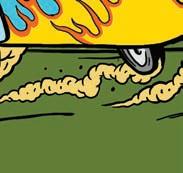

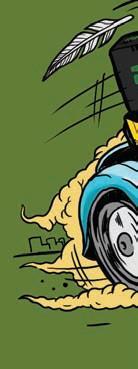



So are the professors rising up in unison to object? Not exactly: senate president Karen Wood responded to an interview request with this e-mailed comment: “The unanimous decision of the Board of Trustees, who have ultimate responsibility for all acts of the University, provides for no longer recognizing the faculty a airs committee. As Faculty Senate President, my job is to support the continued functioning of our University for the benefit of students, faculty and sta . I intend to do my best to ensure that all faculty have voice and input into the future direction of this University by engaging in any and all activity to further both the University mission and faculty concerns.”
The union is asking the NLRB for “immediate injunctive relief.” v




















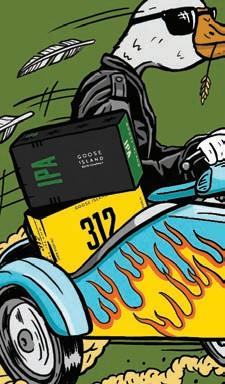





 @DeannaIsaacs
The entrance arch at Chicago’s oldest college
@DeannaIsaacs
The entrance arch at Chicago’s oldest college
COURTESY SAINT XAVIER UNIVERSITY
NEWS & POLITICS The Virtual Beach Ball Online Auction The Virtual bac.givesmart.com BIT.LY/GOOSEDELIVERS
forged alliances with other municipal employees and the wider labor movement. But now, there are signs that the long-standing comradery between cops and the rest of organized labor is fracturing, as more and more people explore what could be done to limit the power of police unions.

In the early 20th century, organizations for rank-and-file cops were not initially oriented toward forming unions for collective bargaining, but they did try to represent o cers’ concerns over labor conditions and pay. In Chicago, the Patrolmen’s Social, Athletic and E ciency Club was named this way to specifically signal that it wasn’t a union, though it did give voice to cops’ frustrations over having to pay for their uniforms and work seven days a week. Still, as unionization was sweeping the private sector through World War I, the American Federation of Labor began issuing charters to nascent police unions. Public officials and police superintendents condemned this incursion of unionism among o cers, arguing that policing was a paramilitary pursuit requiring full allegiance of its o cers to the governments they served. Cops were soldiers, not workers.
From soldier to worker
told the New York Time s. Donahue, meanwhile, reflected that police o cers had “come a long way” since their violent repression of labor activists. “We recognize that the people who fought for labor rights in the past gave us the protections we have today,” the president of the police union told the Times.
By MAYA DUKMASOVA
On September 14, 2004, a scene unfolded in the West Loop that would have been unthinkable a few decades before. The city unveiled a 3,200-pound bronze sculpture commemorating the Haymarket Affair of 1886. A seminal moment in international labor history, the Haymarket A air started as a labor strike for an eight-hour workday and ended in a violent confrontation between demonstrators and police. Someone threw a bomb, four workers and seven cops were killed, dozens of people were injured, and more than 100 arrested. Ultimately seven people accused of inciting the riot were sentenced to death based on scant evidence in a trial criticized for its prejudice against the defendants. For the next century, the city of Chicago com-
memorated the events at Haymarket Square with a massive statue of a police o cer, which was periodically vandalized or destroyed. After two consecutive bombings by the Weathermen between 1968 and 1970, the statue was moved to Chicago Police Department headquarters, where it stands to this day.
Thirty years later, on that day in 2004, the massive sculpture depicting workers atop a wagon was dedicated by Chicago Federation of Labor president Dennis Gannon and Fraternal Order of Police Lodge 7 president Mark Donahue. “Haymarket represents the beginning of labor rights in this country. It’s really about our most important right, which is freedom of speech, freedom to protest. If you don’t have that, you’re going to be oppressed,” Gannon
As the nation roils with protests over police violence, scrutiny has turned toward police unions like the FOP, whose collective bargaining agreements with municipalities help shield o cers from consequences for misconduct. Conversations have started about how cities and states might go about limiting the power of police unions. Labor councils and federations are weighing the expulsion of police unions from their ranks. But how did cops come to have such powerful unions in the fi rst place? Over the course of the 20th century police officers in Chicago went from violent antagonists of workers to legitimate members of the labor movement. As it turns out, the transformation of officers’ public image and self-understanding from a paramilitary organization to public-sector workers was catalyzed by cops’ resistance to discipline for brutality and misconduct. Over time police
In 1919, the AFL-chartered Boston police union went on a five-day strike demanding recognition from the city, which led to chaos and rioting in the streets and the deployment of the State Guard in response. As Woodrow Wilson put it, the police strike was “a crime against civilization” and the AFL suspended its attempts to unionize cops for decades in its aftermath. Meanwhile, police remained the principal response of governments and businesses to labor unrest. In 1937, during what became known as the Memorial Day Massacre in Chicago, cops shot live rounds into striking steel workers and their families, killing ten and injuring dozens more.
The next wave of police unionization attempts would come during World War II, as cops’ salaries deteriorated compared to those of other workers. These attempts were again thwarted by the local, state, and federal government, this time bolstered by a series of court decisions that a rmed the view that cops were akin to the military and were thus di erent from other public employees. Police unions were banned around the country, but the informal organizations formed by the rank and fi le often received some department funding for recreational and charitable activi-
10 CHICAGO READER - JUNE 11, 2020 ll
NEWS & POLITICS
As protests erupted in Chicago over the police killing of George Floyd, CPD fl exed its muscle.
BROOKE HUMMER
LAW ENFORCEMENT AND LABOR
Police unions were born of resistance to discipline for brutality. Do they belong in the labor movement?
ties and negotiated for pay raises and working condition changes with police chiefs and city governments. In Chicago these “handshake” deals were usually secured by the Chicago Patrolmen’s Association. Throughout the mayoral tenure of Richard J. Daley, these kinds of labor agreements with city workers of all types were the norm. The mayor would periodically grant extra compensation for overtime work, salary raises, and a shorter workweek to cops, and the conservative city police force wasn’t keen on having a union— until the city launched a major crackdown on police misconduct in the early 1960s.
The “Summerdale Scandal” of 1960 exposed a police burglary ring in Chicago and brought Orlando W. Wilson as the new CPD superintendent. In the years that followed, the city increased police funding (which went up by 20 percent in just one year), overhauled the technological capacity of the department (including moving foot patrolmen into cars), and got more serious about punishing police misbehavior. Resentment festered between supervisors and the rank and file because Wilson also instituted the fi rst internal a airs division to investigate and discipline o cers and cut funding to police organizations.
Throughout the 1960s new police organizations started to vie for cops’ dues with promises of better representation of their interests. This included the Afro-American Patrolmen’s League (AAPL), which would fight for fairer minority hiring and promotion practices within CPD for 20 years under the slogan “Black Power through the law.” The FOP set up its lodge in Chicago in 1963, quickly signed up hundreds of members, and started demanding a 20 percent raise for cops. Nationwide, police organizations began to win formal recognition as collective bargaining agents for o cers, beginning with New York City’s Police Benevolent Association in 1964, which agreed to give up its right to strike and not to a liate with any other labor union.
The late 1960s saw a culmination of the civil rights movement, along with landmark Supreme Court rulings granting protections to people accused of crimes, such as Miranda rights and a right to legal counsel. At the same time the nation witnessed shocking images of police repression at civil rights demonstrations and anti-Vietnam War protests. In Chicago, a “police riot” marred the Democratic National Convention four months after Mayor Daley authorized police to “shoot to kill” during riots in response to the assassination of Martin Luther King Jr. The next year, law
enforcement o cers killed Illinois Black Panther Party chairman Fred Hampton as he slept in his home. Day-to-day incidents of police brutality and violence against citizens were also beginning to receive more attention.
As historian Megan Marie Adams documented in her 2012 dissertation on Chicago police unionization, between 1969 and 1970 CPD o cers killed 79 people, and thousands reported being beaten and injured by cops. Three-quarters of those killed by police were Black, and Chicago cops killed people at a rate three times higher than those in other major cities. But, even though internal a airs investigations sustained less than 3 percent of brutality charges, discipline for minor violations tended to be swift and severe. Renault Robinson, the head of the AAPL, put it this way in a 1971 speech: “You will get more time for being late than killing somebody accidentally.”
Cops around the country and in Chicago began demanding a “Police Bill of Rights” throughout the 1970s. This bill of rights sought to enshrine protections for cops facing internal discipline that mirrored those o ered to criminal defendants by the U.S. Constitution. As Adams puts it, cops began to conceive of themselves as a persecuted minority and co-opted the language of the civil rights and Black Power movements to demand new rights and protections from public scrutiny. The FOP, which had endorsed segregationist George Wallace for president and fundraised for cops facing criminal charges for their behavior during the DNC, proved particularly skillful in channeling o cers’ frustrations into concrete demands. Though they were still relatively small among the Chicago police organizations, they were beginning to succeed in winning collective bargaining recognition in other police departments in Illinois. They also capitalized on white male cops’ resentment of the increased presence of minorities and women on the force to grow their membership ranks.
Chicago cops were finally allowed to join unions in 1975, after the United Paperworkers International Union sued CPD for violating their employees’ free association rights. Amid the American manufacturing decline private-sector union membership was dwindling, but the public sector o ered a lifeline. Groups that originally had nothing to do with cops, fi refi ghters, and clerks vied to unionize these workforces. Still, Chicago didn’t recognize city workers’ unions. And even though an AFL-CIO a liate went to court on their behalf, police officers mostly stuck with their own
organizations and kept big labor groups, such as the Paperworkers and Teamsters, at arm’s length. According to Adams, many officers saw the unions as corrupt and incongruent with their identities as law enforcement, even as they organized labor actions of their own, like pickets, ticket “blitzes,” and even a meeting at which an e gy of Mayor Daley was hanged from a hotel chandelier.
With the death of Richard J. Daley in 1976, the traditional system of handshake bargaining with public employees collapsed. Two years later Jane Byrne campaigned on the promise to let city workers, including cops, have collective bargaining agreements. In 1980 Chicago cops became the last major city police force in the country to officially unionize. Three police organizations, the Paperworkers, and the Teamsters competed to represent the o cers, while the department and the AAPL campaigned against a union. (The latter’s justification was that a police union would do little to fi ght discrimination against minority officers.) The FOP won the representation election on the strength of its reputation for successfully winning union contracts in other cities, all while maintaining that they weren’t a union.
As the country moved into the Reagan years and organized labor entered a prolonged period of decline, the FOP secured the fi rst contract for rank-and-file cops, which included a Police Bill of Rights. The cops gave up their right to strike in return for new protections from dismissal and discipline. “The FOP’s contract also forged a partnership between the union and the police department as the department aided FOP efforts to dismantle affirmative action policies in court,” Adams writes. This would eventually result in the marginalization and disappearance of the AAPL and other police organizations.
Over the years, the FOP has negotiated increasingly complex contracts and won steady salary increases for its members as well as sweeping protections against misconduct allegations, all the while staunchly supporting even the most disgraced members of the force. In her research, Adams found that in 1992 the FOP won cops pay for “o -duty police dog care” while the next year it dedicated its Saint Patrick’s Day parade float to Jon Burge, who’d led a ring of detectives in torturing suspects for two decades. The union has done precious little to help the department root out corrupt cops or protect whistleblowers who went out on a limb to expose them. Until the Laquan McDonald scandal, the union capitalized on a
trusting and complacent local media to spin official narratives about police killings and has fought tooth and nail to keep o cers’ misconduct records hidden.
Even as its public stature has declined, and its leadership has become increasingly militant in resisting what they see as a culture war against police, the FOP has continued to deliver bulletproof contracts to its 8,200 members. The current contract prohibits investigation of anonymous complaints against o cers, and requires complainants to submit affidavits; it allows o cers to change their statements after reviewing video or audio against them; it bans rewards for whistleblower cops; and it indemnifies o cers against any liability for acts committed on the job. Though this contract technically expired in 2017, it remains in e ect as the FOP and the city negotiate a new one.
Over the years, the union has also made it a practice to stonewall during negotiations, and demand arbitration for their contracts. Three of the last four FOP contracts were drawn up by an arbitrator rather than decided through give-and-take bargaining. As we’ve reported before, arbitration is an inherently conservative process, which privileges existing provisions in a contract and makes it nearly impossible to implement significant changes. Last December then-FOP president Kevin Graham demanded arbitration once again, seeking an 18 percent salary increase for cops over three years and resisting changes to policing practices that are supposed to be implemented through the city’s consent decree with the Illinois Attorney General. The new Lodge 7 president, John Catanzara (who’s been stripped of police powers for allegedly fi ling a false report against former superintendent Eddie Johnson and has logged 50 misconduct allegations) has vowed to go back to negotiating with the city but is keeping the possibility of arbitration in play.
Given this state of a airs, what, if anything, could be done to limit the power of the FOP?
In a blog published in OnLabor last week, Harvard labor law expert and former SEIU assistant general counsel Benjamin Sachs wrote that there’s precedent for limiting the collective bargaining powers of particular unions without threatening the labor movement as a whole.
“When unions bargained contracts that excluded Black workers from employment or that relegated Black workers to inferior jobs, the law stepped in and stripped unions of the
JUNE 11, 2020 - CHICAGO READER 11 NEWS & POLITICS
continued from 11
right to use collective bargaining in these ways,” he wrote. Sachs argued that “police unions have abused the power of collective bargaining in indefensible ways” and suggested curtailing their power by opening bargaining sessions to the public, changing state laws to allow police forces to have multiple unions or “minority union bargaining,” and limiting “the range of subjects over which police unions have the right to bargain.”
While private-sector union bargaining rules are governed by federal laws, public-sector unions are under state jurisdiction. This is what has allowed some states, like Wisconsin and Texas, to prohibit, eliminate, or severely limit public employee unions. In Wisconsin cops and firefighters were the only ones excluded from the 2011 legislative changes that made it a right-to-work state for public-sector workers. There’s no reason why new state laws couldn’t apply to police alone. But such legislation would require sweeping action from politicians who, by and large, still fear not coming across as tough enough on crime more than they fear the optics of supporting police o cers that brutalize Black communities.
“The cops are bargaining with politicians and other leaders who have bought into the carceral state, this awful law-and-order narrative that demonizes communities of color,” said former AFL-CIO associate general counsel Ana Avendaño. “They have an incredibly weak opponent, dealing with politicians who have no backbone, and so they’re able to bargain these incredibly unjust contracts.”
“We’re in a moment when the abuse of collective bargaining power by the police has been exposed for the world to see,” Avendaño said, adding that state laws can limit the scope of union contracts—for example, allowing cops to bargain over wages and benefits but not over disciplinary procedures. Similarly, state laws can also change when it comes to arbitration. “States allow public employees the right to bargain and that’s a good thing. It gives them safety and security, it makes a more stable workforce and protects the public,” she said. “I think what’s di erent about the police is they have been able to wield the power of white supremacy to bargain contracts for themselves that are just unlike any other public employee contract.”
A way to limit police union power and change the political calculus around supporting the police, Avendaño added, is to expel cops’ unions from local labor councils like
the Chicago Federation of Labor or national ones like the AFL-CIO. Fraternal Orders of Police and Police Benevolent Associations rarely belong to federations anyway (Lodge 7 isn’t part of the CFL), but there are smaller police unions that do. When a union isn’t part of an umbrella group, other unions can set up competing groups within the workforce that union represents. Though the FOP is the exclusive bargaining agent authorized by the city of Chicago, public-sector employees in Illinois are allowed to vote to decertify a union if they can gather the support of 30 percent of their shop. Of course, since the FOP has won such strong contracts for its members, it seems unlikely that that would ever happen.
Avendaño said that so far she’s been disappointed by organized labor’s response to the current political moment and hopes to see bolder statements calling out police unions from national labor groups like the AFL-CIO.
“The labor movement can’t be the armadillo protecting its soft underbelly with a hard shell hoping this issue will go away,” she said. “Nor can we just sign on to a right-wing agenda to do away with collective bargaining rights for public employees. For us to be able to manage this dilemma, the labor movement is gonna have to stand up, recognize that there are problems with police unions, and form strong alliances with activist groups who are changing the system.”
In Chicago, much of the organized labor community has been treading lightly on the issue of whether the FOP belongs in the labor movement and whether the power of cops’ unions should be limited. This is despite the fact that the FOP has long stayed at the margins of the labor community here.
Local labor leaders who spoke to the Reader were generally evasive when it came to talking about the FOP. Some in the labor movement have been wary to speak out against police unions for fear of feeding into broader anti-union sentiment that threatens public-sector collective bargaining rights as a whole.
There’s also the issue of culture inside labor unions, whose members (especially those in the Chicago public sector and those in the trades) often have family and neighborhood ties to cops.
“I’ve never seen the police stand in solidarity with striking workers, but I have seen them stand in solidarity with white supremacists to protest [Cook County state’s attorney] Kim Foxx,” said Jerry Morrison, assistant to the
president of SEIU Local 1, who emphasized he was only sharing his opinion as a member of the local and not as the voice of leadership. The union represents 35,000 public-sector workers in Chicagoland, mostly janitors, security guards, and doormen. “The FOP has always been seen as a far-right, reactionary organization,” Morrison said, “I can’t think of any union in Chicago that would defend a member who committed murder on the job. Not only did the FOP defend [Jason] Van Dyke, they gave him a job. They used union dues to give him a job. They don’t behave like a union.”
“I think police can have their union but we need to attack the power of the police union. And that means not having other labor movements stand in solidarity with police,” said Scott Mechanic, a member of National Nurses United and a nurse in the COVID-19 intensive care unit at the University of Chicago hospital. He said he’s been disappointed in his union’s “heartfelt but bland statement condemning racism and calling George Floyd’s death a murder,” adding that what he views as his union’s hesitancy to speak out against the police “is a reflection of endemic racism amongst our rank-and-file nurses, many of whom are married to cops. . . . There’s so much work to do toward police abolition in health care—reclaiming health-care work from police, which includes responding to mental health emergencies, criminalization of homelessness, and limiting harm from drug use. I don’t think any of those things should be functions of police in our society and that’s a huge part of what they do and [NNU] has not taken a stance on that.”
“In my view, every working person has a fundamental right to a voice on the job. But along with this right comes a responsibility to use that voice to promote justice for all,” Chicago Federation of Labor president Bob Reiter wrote in an e-mailed statement. The CFL is an umbrella organization comprising 300 unions in Chicago and Cook County. Last week it issued a statement “resolving to commit itself to fighting for social, economic, and racial justice in all aspects of its work,” but Reiter hesitated to make any specific remarks about the FOP. “When it comes to Lodge 7 we’ve had very little interaction with them,” he said on the phone. FOP leadership hasn’t shown public support for a CFL action since the 2012 teacher strike, Reiter said.
“The FOP has a very complicated relationship with the rest of us,” said Carlos Ginard, assistant manager of Workers United in the midwest, a union that represents some 4,000
low-wage workers, mostly at industrial laundries. “But every worker in America deserves a union, including police o cers.” Ginard said that his union’s membership has been active in protests and that they support the call to defund the police, but that he doesn’t see that as an attack on police labor rights.
“I’ll never advocate for cutting pay to union members, but I think we need to reform how we police our streets completely,” he said. “We’ve been giving cops too much money and that’s created a criminal justice system that’s completely against the poor. Look at the equipment that police o cers have, you could be buying so many things for children in this city with that same money.”
In Chicago’s labor community, the most forceful stance against the current state of policing has come from the Chicago Teachers Union. Last week the union joined protesters’ calls to defund CPD and take police o cers out of schools. It seems the union has evolved in its position since fumbling to distance itself from abolitionist organizer Page May’s “fuck the police” cries at CTU’s 2016 one-day strike. Yet Stacy Davis Gates, vice president of the Chicago Teachers Union, said condemning the FOP isn’t really the point. “While we can go o about the FOP and its behavior I think the greater focus has to be on how labor has to take a sharper stance on eradicating white supremacy,” Gates said. That starts by putting women and people of color—who comprise the overwhelming majority of many labor unions’ members—in leadership positions, she said.
“If you have people most impacted by white supremacy in control of decisions, you’ll get a labor movement that expresses racial justice.”
Gates veered away from discussing the CTU’s positions in 2016, when she wasn’t yet in leadership, but said that “Black youth and organizers have led us to a space of reckoning where we get to decide to fund the communities where they reside and the schools where they attend and to make sure they’re safe and not brutalized.”
The Reader reached out to leadership of the Teamsters (who represent guards at the Cook County Jail, among others) and the American Federation of State, County and Municipal Employees (who represent Illinois prison guards, among others) but didn’t receive a response.
FOP Lodge 7 president John Catanzara also didn’t return a request for comment. v
12 CHICAGO READER - JUNE 11, 2020 ll NEWS & POLITICS
@mdoukmas
The front lines of police brutality
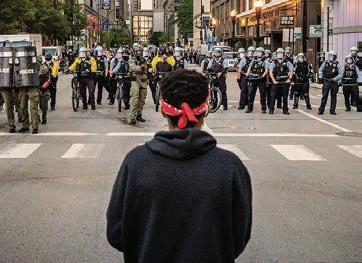



I TOOK A PHOTO of an officer shooting pepper spray into the face of a man holding his bicycle. He must have seen the flash from my camera because he turned around and sprayed my face too. He was two feet away. I was blinded. My throat and eyes were on fire. I share this experience as a testimony to the injustice I observed against others, the Black Chicagoans who have no choice but to protest in the streets during a pandemic. By the time I came home to the comforts of my white privileged life, I was undone. I had no idea where to direct my rage. I do not have internalized pain from hundreds of years of oppression, abuse, and institutionalized racism raging inside my soul, yet the intensity of my fury was explosive. Law enforcement had incited violence. v
Read more at chicagoreader.com
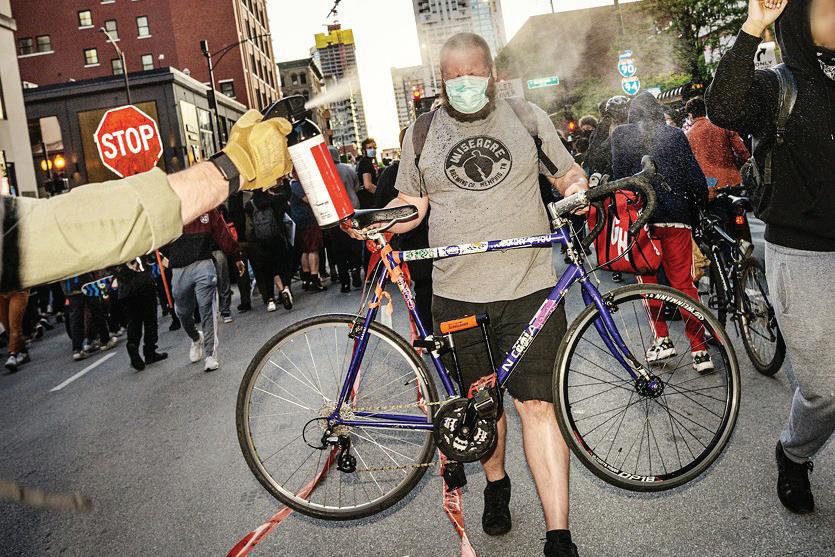
JUNE 11, 2020 - CHICAGO READER 13
DISPATCH
Scenes from a protest where cops pepper sprayed a kettled crowd
PHOTOS
AND STORY BY BROOKE HUMMER
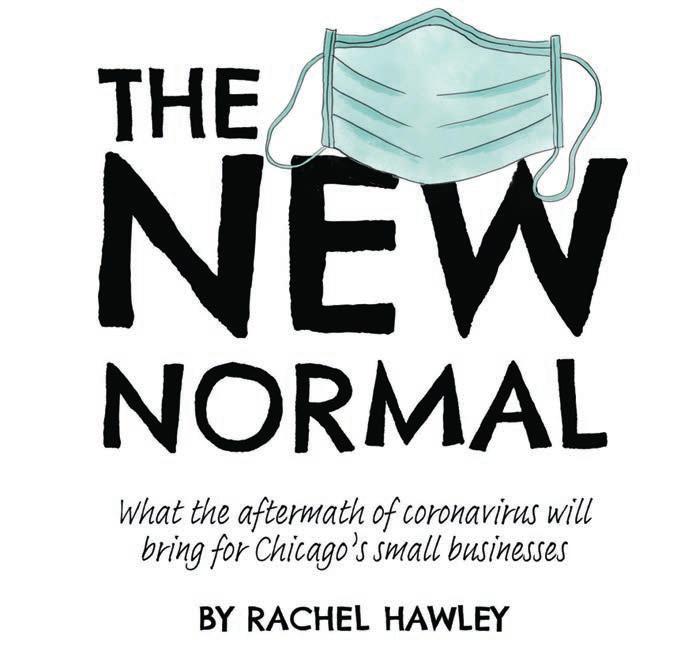
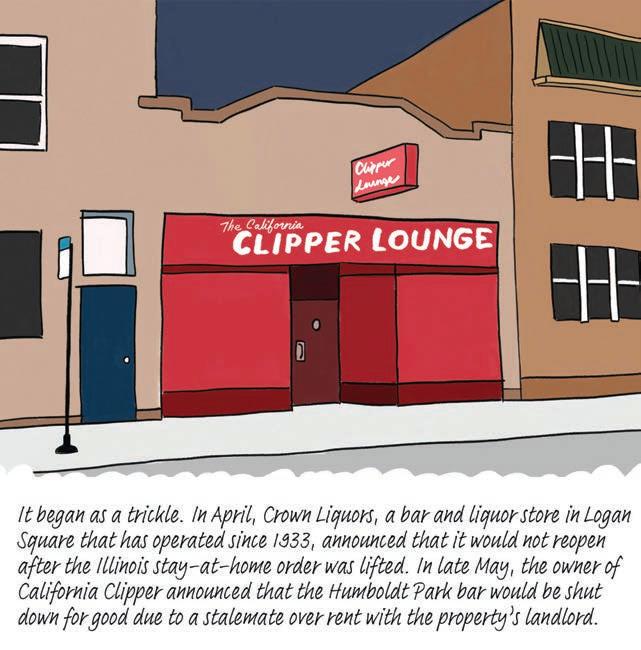
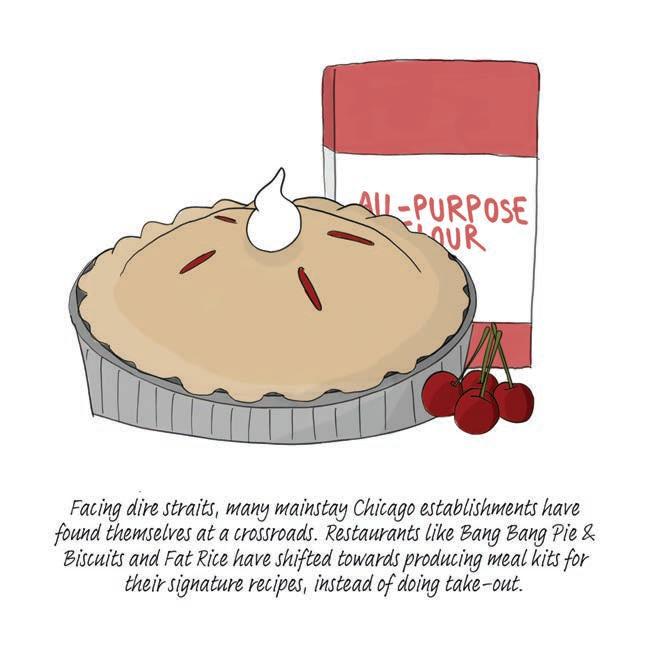
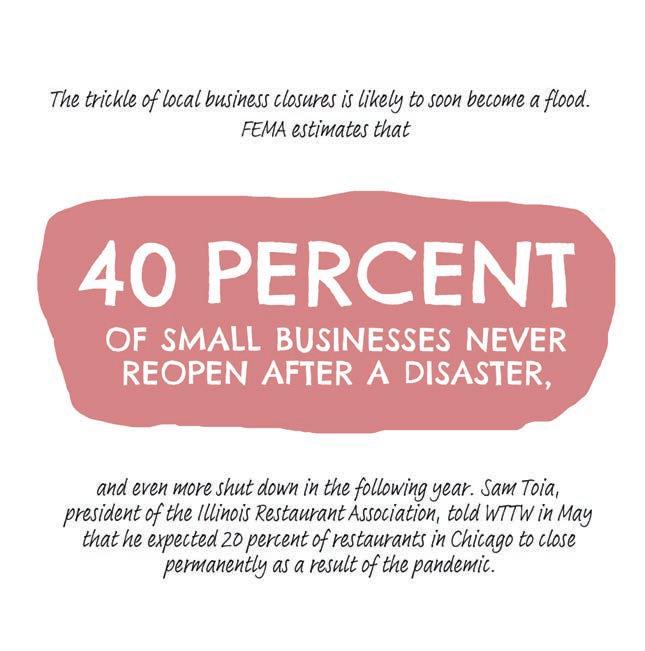
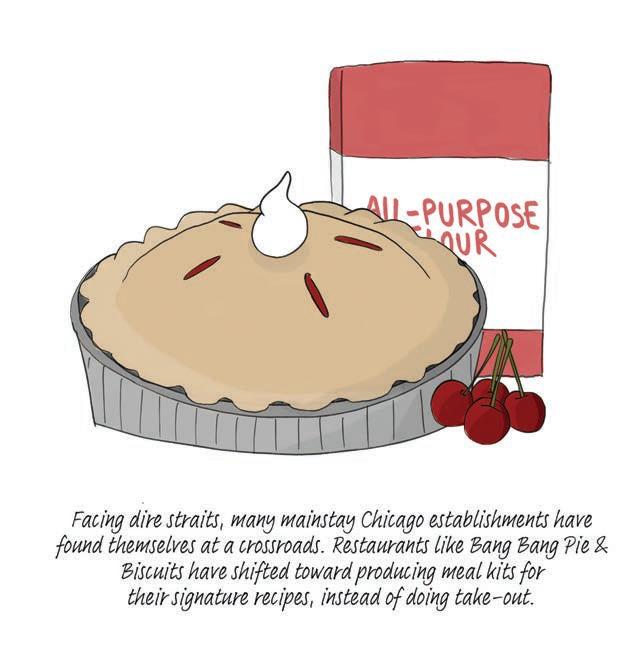
14 CHICAGO READER - JUNE 11, 2020 ll
music bar on the north
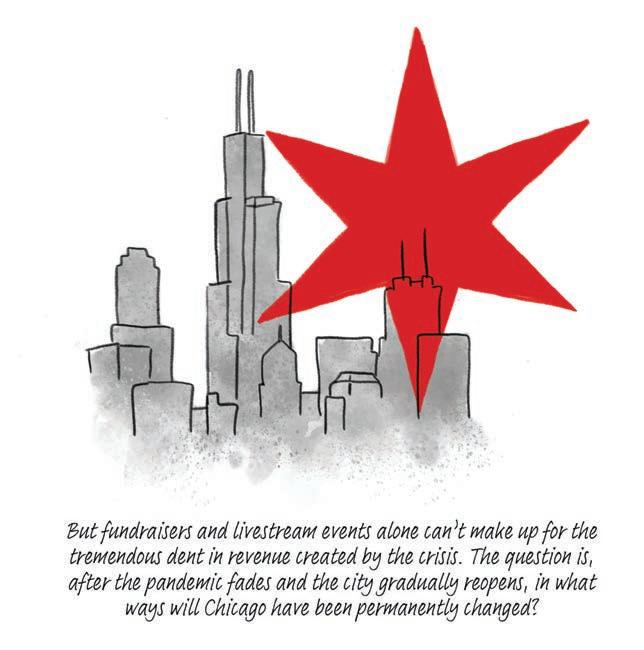
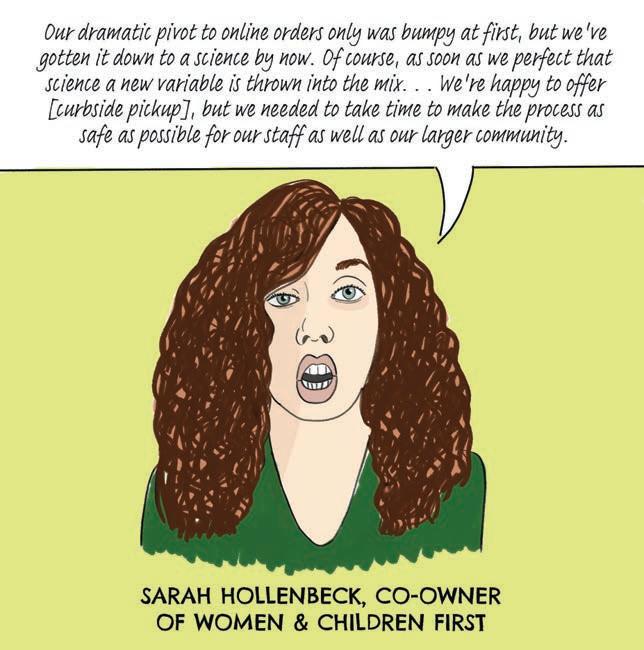
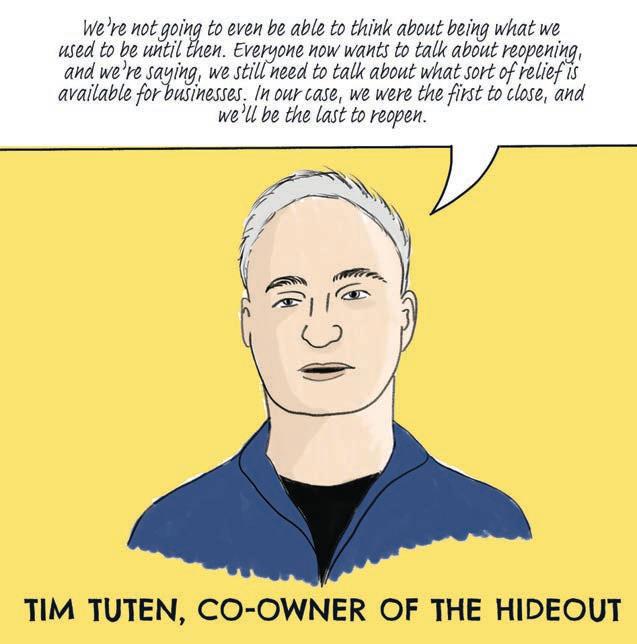

JUNE 11, 2020 - CHICAGO READER 15ll
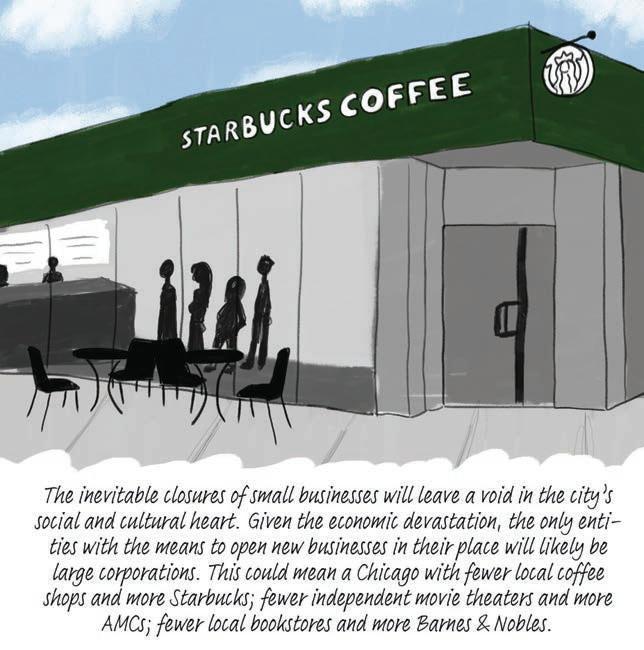
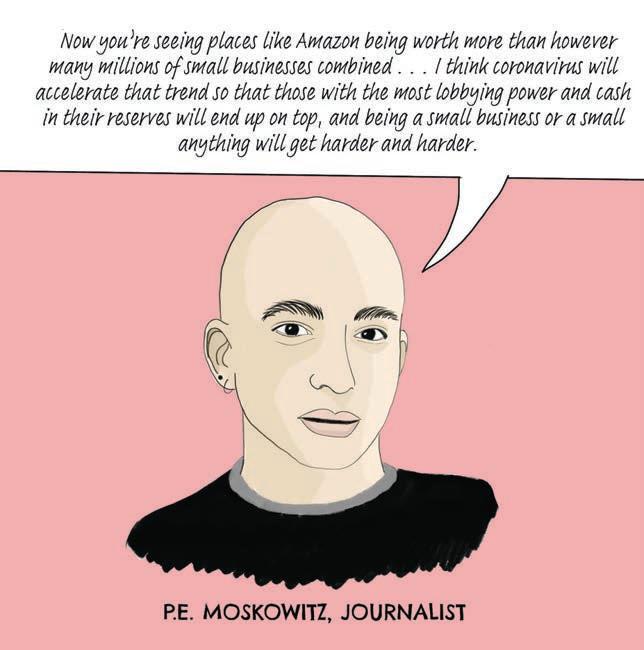

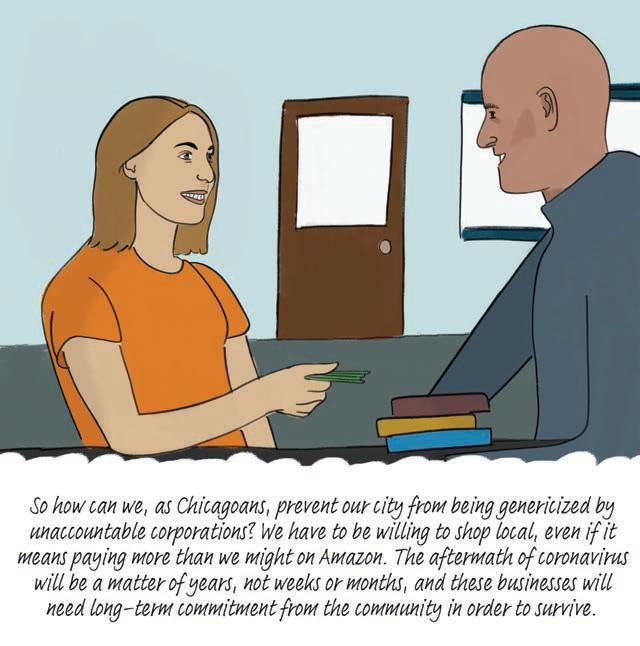

16 CHICAGO READER - JUNE 11, 2020 ll
Resting uneasy
By DERRICK CLIFTON
It’s 2 AM. Social media lights up with posts that send a feeble flare.
“Is anyone else up and having trouble sleeping?” one friend on Facebook writes.
Another quips, “I’ve been able to do nothing but nap o and on during the day, and I can’t seem to get anything done once the afternoon strikes.” Since the coronavirus pandemic and stay-at-home orders began, countless people on Twitter have been habitually waking up earlier than the birds, canvassing their followers to see if anyone is experiencing similar sleep patterns.
More often than not, I’ve been up late—or early—enough to be able to respond in real time. After one particularly rough night in which I woke up sweating profusely, I got up enough gumption to post and ask my own friends if they, too, were struggling with getting good rest. And there was an added layer to my nightly disturbances in the form of unusually vivid dreams that woke me up and made it more di cult to return to sleep.
There was something of a pattern at play: the feeling of being punished for trying to go about life as usual, and a nostalgia for familiar
people and places. In one instance, I dreamt that I was naked and unprepared for an event where I was scheduled to speak; right as I was in the middle of writing my speech, the appearance quickly changed to taking place at home, from my computer, within minutes. I was left scrambling, running to the restroom feeling harried. And then I woke up, short of breath at 4 AM, having to relieve myself and make sense of why I felt so tense.
After that night, I learned I was not alone. One of my friends on the west coast said they’d dreamt that the nation had descended into martial law and a time of extreme measures for survival. Another friend slumbered into a nightmare about getting yelled at in a drive-thru testing site for COVID-19. Others had stress dreams about work, traumatic events from their past, or accidentally infecting other people with COVID-19 by not properly socially distancing, and one friend’s nightmare mirrored the news of some cruise ships being docked indefinitely due to outbreaks, as she ended up as a passenger on an infected private yacht.
Most of them said they hadn’t had dreams
this vivid before COVID-19, and we all didn’t quite know how to process what was happening. But somewhere, subconsciously, our brains were making sense of the stark shift in routine and lifestyle, if not a wave of grief over constant news about the suffering and loss of life brought on by the pandemic, or the feeling of collective stress.
If this sounds like something you or your friends have also experienced, experts say you aren’t alone, and that there are various methods of processing and coping with the unusually vivid dreams and sleep disturbances.
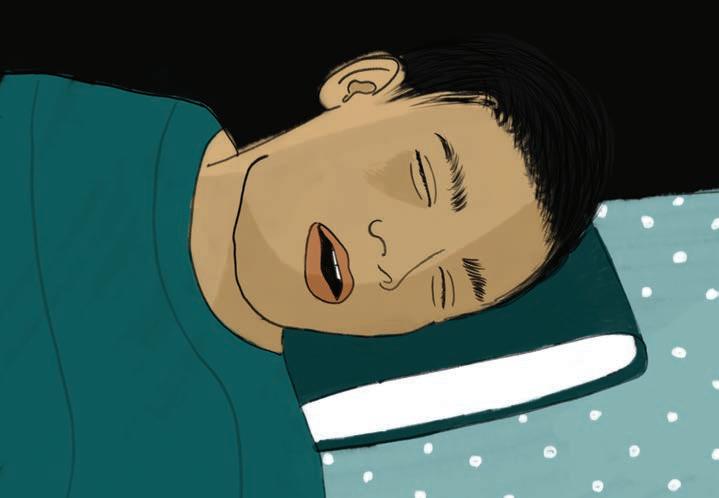
Dr. Jennifer Mundt, a sleep psychologist at the Northwestern Medicine Sleep Disorders Group, said a number of behavioral, psychological, and environmental factors are at play with the disruption in sleep patterns that’s emerged since the onset of COVID-19. Although some people may be sleeping better with the extra time, she said others may have their schedules thrown off due to sudden unemployment or increased use of alcohol at home, along with any emergence of anxiety or depression, lack of sunlight from extended time indoors, and most of all, elevated stress.
“Insomnia and nightmares are really common reactions to stress and trauma, so it’s a very normal reaction, and people are having trouble sleeping. It is normal. For most people, it will just fade naturally over time,” Mundt said. “I think that’s important, because it’s not something to focus a lot on and worry about, it’ll pass as life goes back to normal. Sleep will go back to normal for most people.”
But the experience of nightmares, newly vivid dreams, or altered sleep patterns with COVID-19 isn’t universal. Some people may like the new vividness of dreams, said Dr. James Wyatt, who specializes in clinical sleep disorders and behavioral sleep medicine at Rush University Medical Center.
“The experience of people dealing with this is highly varied and mixed. Many people are spending more time at home, and there may be more positive and negative elements associated with it. If you’re working from home, there may be a positive element to not having a longer commute, more time with the kids, or more cooking,” Wyatt said, noting that an individual’s level of resilience is also a factor. “It’s challenging individuals to see how much they can process the change and how much good can they pull out of it.”
Drawing from recent telehealth visits with patients experiencing sleep disruptions and insomnia, Wyatt said some people are having trouble sleeping out of fear of exposure, anxiety or stress associated with job loss, or because they don’t have the same daily routine to get up and go do. On the other hand, some people have had less pressure put on their sleep because they have more flexibility than before.
Still, some therapists say that the hyperconsumption of news about the virus could be adding to daily stress and contributing to trouble sleeping, in addition to the very real experiences of scarcity at the height of the pandemic, and the economic fallout. The problem comes when vivid dreams turn into persistent nightmares, or when sleep disruptions become more of a long-standing challenge versus an occasional occurrence. That’s when treatment with a doctor or therapist could become necessary.
“There’s nothing really problematic with vivid dreams, but there’s a problem when you’re disturbed by it. It’s the content that disturbs people,” said Monica Guzman, a licensed clinical professional counselor at a community-based health center. “Sometimes, when you talk [or write] about it, you can work out the path the brain was trying to work through so there can be resolution . . . or leave your bed and do something like reading, and if you get sleepy, go back.”
Guzman advises focusing on rest rather than getting back to sleep, because stressing about sleeping may spur anxiety that ends up keeping you awake. Others note that it’s important to take a holistic approach to determining what’s impacting your ability to sleep well, especially during the pandemic.
“Are you sleeping enough? What are you eating? Are you exercising? Taking care of your physical health, too, can impact your dreams. If you’re thinking it’s COVID related, are you reading the news before bed? Are you watching a lot of TV before bed? I really encourage sleep hygiene as a practice and noticing and recognizing any patterns that may be a ecting sleep which, in turn, may be a ecting your dreams at night,” said Caroline Heller, a licensed clinical professional counselor and board-certified art therapist.
“I also take a harm reduction approach,” Heller added, encouraging people to consider what they might do or reduce to have a better night’s rest. v
JUNE 11, 2020 - CHICAGO READER 17
@DerrickClifton NEWS & POLITICS RACHEL HAWLEY
CORONAVIRUS
Your wildest dreams and odd sleep patterns during the pandemic, explained
Stanzas in place
The Chicago Poetry Center gives CPS students virtual literary lessons.
 By MARISSA DE LA CERDA
By MARISSA DE LA CERDA
Just one week after Chicago Public Schools (CPS) went remote, the Chicago Poetry Center (CPC), a not-for-profit 501c3 arts organization designed to facilitate creative literacy and self-expression through poetry, was able to follow suit and pivot their CPS schoolbased poetry residencies “Hands On Stanzas” to virtual programs.
Currently, CPC has virtual residencies in 26 classrooms across nine schools in the city. The residencies, which usually consist of a Chicago poet in residence meeting with their assigned classrooms weekly to read, write, and perform poetry, now exist via videos for students with computer and Internet access, or via workbook packets for those in need of non-digital support.
“We try to make sure that we’re delivering workbooks and instructions that can turn into
paper packets if students are coming to the school for meal and enrichment packet pickup so that way we can support students without Internet access,” says Elizabeth Metzger Sampson, executive director of CPC. The workbooks consist of two to three pages of stepby-step instruction on the poetry lessons the poets in residence have chosen for the week.
“Each poet has done this a little bit di erently,” says Metzger Sampson. “For instance, one of our poets, Joy Young, she actually throws the workbook on her screen, screen shares, and really does sort of an ‘I do, you do, we do’ sort of lesson with the students in the screen share.”
Similarly, Leslie Reese, who works with second graders at Swift Elementary School, says she uses the bond she created with her students in person as an encouragement to
experiment with her remote teaching method.
“I set up a colorful corner in my apartment with a display of illustrated poetry anthologies and my flipboard with markers and that’s where I recorded my videos. I reshaped some lessons from my syllabus so that there was room for students to channel their feelings imaginatively,” she says. “For instance, in the ‘persona poems’ lesson, I asked students, ‘Do you think that school misses us?’ and then guided them to write poems in the voice(s) of things at school (art paintbrushes, classrooms, etc.) that miss the sights and sounds of being used and inhabited by students and teachers.”
Pre-COVID-19, the poets in residence would collect students’ work and publish different poems on CPC’s website every week. Now, the publishing is limited to who is writing and sending in work. The work is published on CPC’s “Shelter in Poetry” blog—currently, the blog has 12 posts with a brief description of the lesson students were taught and the poems they wrote as a result.
“In ‘A Little Girl’s Poem’ by Gwendolyn Brooks, the voice of the child shares a vision of what is good and what is not right in the world. She ends by saying, ‘Life is for us, and is shining. / We have a right to sing,’” says Reese. “Reading that poem inspired me to create the
‘My World’ poems lesson. I wanted students to feel encouraged to share their own candid, whimsical, and visionary ideas for the world we live in.”
There is also work by students from Taft Freshman Academy, whose poet in residence is Timothy David Rey. In these poems, seventh-to-ninth-grade students were inspired by Li Po’s “Quiet Night Thoughts” and wrote about the quietness (or lack thereof) of their evenings.
“I try to pick poems that were written where they could express themselves, maybe about what’s going on now with the pandemic, or how they’re feeling,” says Rey. “A lot of poems had to do with self-care, so they could sort of look around themselves and see what’s happening and respond to that through poetry.”
Rey believes one of the challenges of teaching poetry virtually is that there is no chance for feedback. Yet he’s found that even with this challenge, students are still engaging with the material, even the most reluctant writers.
“We would receive writings from students who may not have written when they were in a formal classroom setting,” he says.
Another way CPC has continued engaging with their students is by transitioning their pop-up assemblies into a remote format. Last week they hosted their first virtual assembly with Urban Gateways attended by more than 90 fifth-grade students. Additionally, they have moved their annual “All Schools Reading” event online, which features a select number of students reading their poems in front of family and friends. “We got 35 videos back with 35 signed parental media releases,” says Metzger Sampson. “We are now building out a couple of videos that are going to be broken up by grade group, and we’ll be debuting that video in probably like mid-June.”
With these lessons, virtual assemblies, and videos, CPC hopes students feel encouraged and inspired throughout these trying times. “I think a lot of what these lessons are teaching right now is, it’s OK to have feelings. It’s OK to explore that feeling. It’s OK to have complicated feelings,” says Metzger Sampson. “And alternately, what I think that they’re exploring is, ‘Hey, let’s dream. Let’s imagine and let’s create’ because [this is] a wonderful way to energize themselves and spend their time while we’re all stuck at home.” v
18 CHICAGO READER - JUNE 11, 2020 ll ARTS & CULTURE
Leslie Reese ELIZABETH METZGER SAMPSON
LIT
@marndel7
R “THE TRANSCENDENCE OF TIME”


Through 6/27, online or by appointment, Monique Meloche Gallery, 451 N. Paulina, moniquemeloche.com. F

An examination of Black identity and time
Conceptual artist Nate Young’s “The Transcendence of Time” puts his own family’s Great Migration story on display.
By ARIONNE NETTLES
When William Nathaniel Jackson arrived in Philadelphia in the early 1900s, he became a new man. He was fleeing from somewhere near the Carolinas when he traveled north. There, he took a new name, made a new family, and built a new life. He buried his old life. He became a pillar of the community—he was likely one before, which may have contributed to his need to escape. The full story, though, is a puzzle that his family can vaguely make out but possibly
never see complete, an oral history pieced together with memories and stories.
It’s a familiar narrative for Black families who relocated during the first and second waves of the Great Migration. The mining of these memories led conceptual artist Nate Young to his new work, “The Transcendence of Time,” showing virtually and in person by appointment through Chicago’s Monique Meloche Gallery. Jackson was Young’s great-grandfather—the father of his paternal
Nate Young, three works on paper, 2020 COURTESY MONIQUE MELOCHE GALLERY

grandmother.
“If he was someone before he left and then he was someone else when he arrived, or set up a new life, that liminal state was kind of a vacuum of identity,” Young says. “And that was what was really driving my initial interest in him as a character.”
Today, a century after Jackson’s move, Young’s exploration of time feels eerily more relevant than ever—a blending of the past and present. The combination of a global pandemic that disproportionately affects Black communities and widespread protests against racism-driven police violence feels both unprecedented and reminiscent of past struggles.
“The thing that I’ve been thinking about a lot lately is the complicated nature of time, about the potential of collapsing the past and the present and the future into one thing as opposed to thinking about it linearly,” Young says.
In Philadelphia, Jackson was a fugitive. While looking through his journals and writings, Young found that out of fear Jackson put down the horse that he’d used to travel north and buried it. Jackson also attempted to take his own life. The horse’s bones and words from Jackson’s suicide letter are incorporated throughout the work.
“How do you hide something so large? A horse is a huge, really strong, and really large animal,” Young says. “To hide something like that is very di cult; it takes a lot of e ort. So I was thinking about that in parallel with . . . the way that history is erased as well—or hidden, buried and then unearthed at di erent times. It’s sort of, once those hidden things start to come to light, in the context of a dif-
ferent time, they take o , and they may take on di erent kinds of meanings.”

In the online presentation, Young explains his family’s history and how he created the work, and guides audiences through the exhibition, which has multiple sets of sculptural works made of the excavated bones and handwritten words from Jackson’s suicide note. White oak and walnut reliquaries (or box altars) line the walls and walnut vitrines (or displays) that also have motion-activated audio of the bones rubbing together are placed randomly throughout the gallery. Young’s use of sound here is intentional.
“I wanted to use sound as a proof of a presence of an object that you can’t necessarily see, and that for me is parallel to thinking about history,” Young says. “I never saw my great-grandfather. I’ve seen a picture of him, but even that picture is constantly evading me. I’ve been trying to find it and I haven’t been able to find it for years. But there must be another way to prove his existence, and maybe a sound is a memory.”
Young’s exhibition lies in the in-between, in what you can and cannot see, and he hopes that visitors spend time in that place of doubt.
“When someone encounters the exhibition and then leaves, that doubt is important to me because it reveals the dichotomy between belief: belief and unbelief,” Young says. “Because what I don’t want is just to reveal my own familial history, but to think about the ways in which those ideas are transmitted— whether it’s through historical text, whether it’s through oral tradition, whether it’s visually, whether it’s sound—that vessel that I was describing is the vehicle through which belief can be produced.” v
@ArionneNettles
JUNE 11, 2020 - CHICAGO READER 19 ARTS & CULTURE
VIS ARTS
CHICAGOREADER.THREADLESS.COM CHICAGO READER MASKS
R READER RECOMMENDED b ALL AGES F



























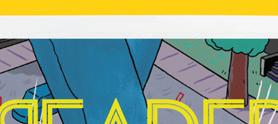








THE SMALL HOURS FESTIVAL



Thu 6/ 18, 8-11 PM (content remains online afterward), instagram.com/smallhoursfestival, F





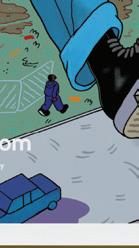
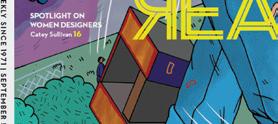
Community through monologue




Prop’s Small Hours Festival pairs playwrights and performers. ARIEL PARRELLA-AURELI



When Aniello Fontano finished his MFA studies in dramatic writing from the University of New Mexico, COVID-19 was just getting started. The Chicago actor, director, and playwright had been away from the local theater community for three years but with the pandemic’s swift hit, now was not the time to go back.
Isolated in his Albuquerque apartment, he felt compelled to contribute to the artistic community from afar and give voice to the discomfort brought on by the current times. He started by writing monologues for actors now doing self-tape auditions from home. “I was constantly looking for ways to feel like I was being productive and like I was helping people,” Fontano says.
Through the large network of actors he knows, those creative efforts grew into the Small Hours Festival, a new monthly virtual festival produced by Fontano and Prop artistic director Olivia Lilley as a way to connect actors with each other, let them speak their minds about the pandemic, and give creatively to the world, instead of financially.
For gig workers, sometimes donating money isn’t an option. As in other artistic endeavors, many theatermakers don’t have the luxury of















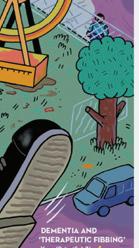

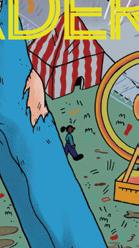
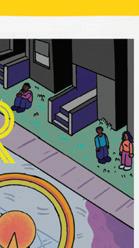
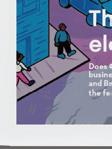








getting paid to work solely in the arts, which means they have multiple jobs and must look for other ways to get involved and help communities in times of crisis. And when your industry is suffering, how do you cope? You create, Fontano says.
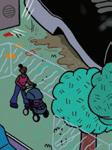

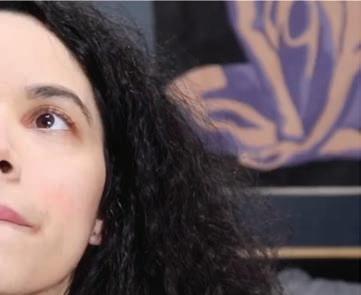

“[We are] boots on the ground workers, we cannot donate money, it’s not a thing we can do, and further, our main source of income is gone,” he says. “The thing we love, the thing we are passionate about is changing drastically. For those people like myself, who really want to give something but can only give their heart and art and mind right now, [the festival] gives them an outlet to do so.”
The festival, which debuted May 21 on Instagram’s IGTV, pairs Chicago playwrights, screenwriters, and TV writers with local actors to create collaborative monodramas that highlight individual style and skills. It’s also a way to disrupt a local theater scene that can be cliquish and isolated, Lilley says. And as coproducers of Rhino Fest, Chicago’s longest-running alternative theater festival, Small Hours fits into Prop’s mission of showcasing new voices and work. “We wanted to disrupt [the theater scene] by introducing people who didn’t know each other who were awesome to





each other,” Lilley says.









The producers say the festival is meant to not only highlight new artists and amplify their voices but also create lasting relationships in the theater community that continue outside of Small Hours. That starts with the foundational pairings of talent and perspective to find people who can complement each other.

“With submissions, it’s finding people that care about the same things, that are passionate about the same things and matching them together,” Fontano says.

The first festival featured monologue dramas about people coping with isolation, death and the cycle of life, the Black Lives Matter movement, and other emotional stories about our past and present. Fontano, who is also on the board of Prop, wants artists to have full creative freedom and write about whatever they choose and not be limited by any curatorial perimeters.
Fontano and Lilley, who both have backgrounds participating in Chicago’s DIY scene, want the festival energy to be reminiscent of that familiar community that, at its best, transmits positivity, creation, and inclusion, rather than competition and status. “We are not competing with one another in Small Hours, we are creating,” Fontano says. “You are amplifying one another’s voices for the sake of the art and our collective enjoyment and sanity.”
The producers say the fest was created to fit the current time but hope it can transition to an in-person showcase once the pandemic is behind us. Lilley says the project was also built to partner with other theater companies in the future. “It has a brand unto itself and we want it to be flexible and malleable and go wherever it needs to go,” she says.
The experimental festival, cosponsored by Cape Horn Illustration, is back June 18 with a new lineup of actors and writers, featuring Chelsea Turner, Jessica Kearney, Kenya Ann Hall, Patrick Agada, Bernadette Carter, Derek Lee McPhatter, Aidaa Peerzada, Ada Alozie, Terry Guest, and more. While May’s festival featured 48 artists and 24 pairings that were invite only, the producers say the next round will have 24 people and 12 pairings, half of which will be invite only. Those who want to participate in the June 18 fest, which will begin uploading to the Instagram account at 8 PM that evening, can e-mail a cover letter and resumé to smallhoursfestival@gmail.com. v
20 CHICAGO READER - JUNE 11, 2020 ll THEATER
Isaly Viana performed in the fi rst Small Hours Festival.
COURTESY PROP THTR
VIRTUAL
FESTIVAL
@ArielParrella
Providing arts coverage in Chicago since 1971. www.chicagoreader.com










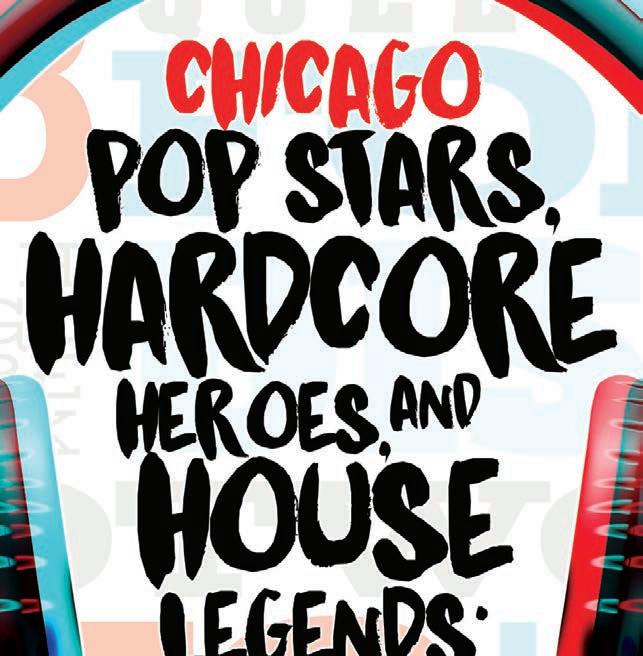



JUNE 11, 2020 - CHICAGO READER 21 chicagoreader.com/leorbook Donate to get Leor Galil's best articles over the past 10 years of Chicago music!
By JAMIE LUDWIG


To say that the COVID-19 pandemic has put a damper on live arts and cultural events would be to say that the Hindenburg was a little explosive. But as we’ve seen countless times since Chicago’s shelter-inplace order went into effect in mid-March, the virus is no match for the ingenuity of the city’s creative community.
Enter Chicago Drive-In, which opens in a parking lot in Bridgeview’s SeatGeek Stadium this week. The venture is the brainchild
of a group of local festival and event organizers, including Cobra Lounge manager Louie Mendicino, who says it was born out of necessity. “What we do, and what we’re most proud of, is what we bring to the masses,” Mendicino says. “We really needed to tap into that degree of pride again, and come together on a project. That’s where we’re at our best, personally and professionally.”
The venue, which can fit up to 300 cars, will screen family-friendly classics such as The




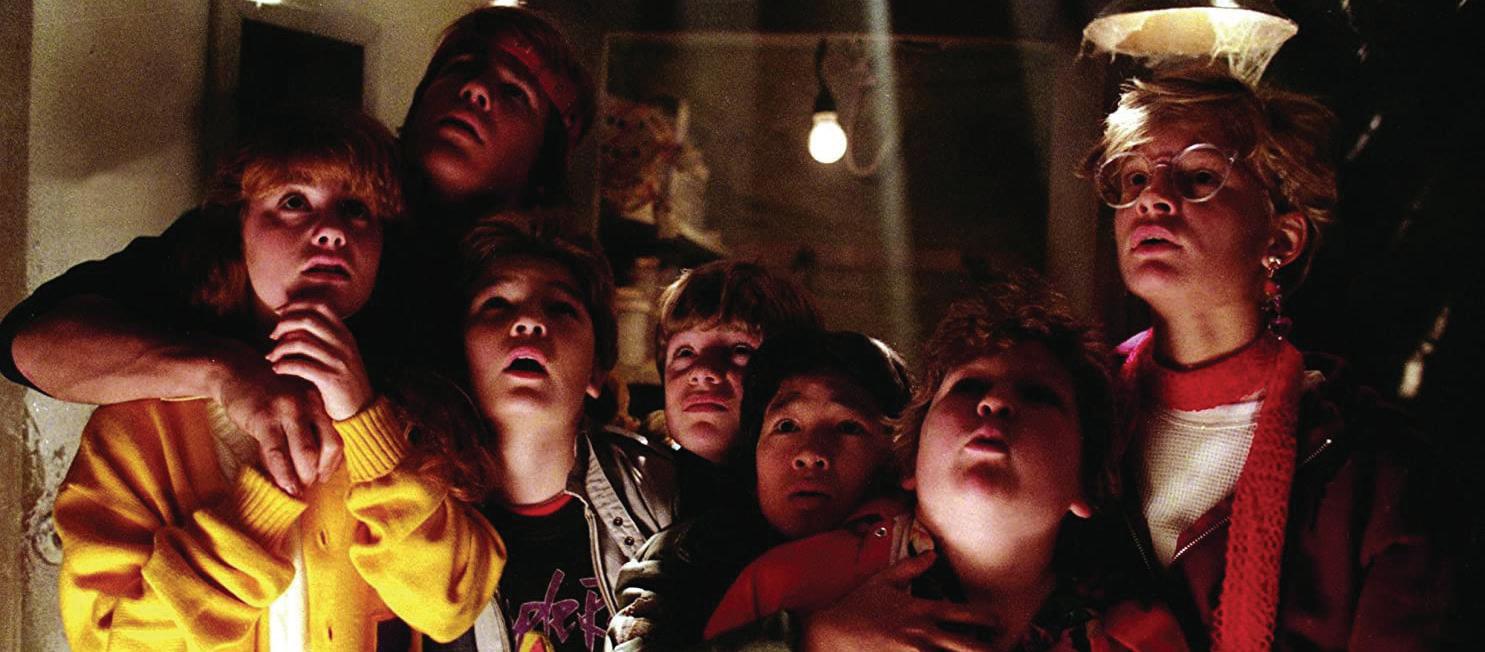
22 CHIC JUNE 11, 2020 ll FILM
OUTDOOR SCREENINGS Chicago Drive-In opens in Bridgeview A group of local festival and event organizers invite us to the movies.
Learn more at IllinoisLottery.com TURN MILES INTO A MILLION ON ROUTE 66 ROUTE 66™ Scientific Games International, Inc. All rights reserved.
Goonies and The Sandlot on a nightly basis across its 70-foot screen. “These are movies my generation wants their kids to see—they are timeless to a degree,” Mendicino says. “[Parents] have an opportunity to not only get out of the house, but to o er something to their kids: an insight to their youth and their culture. So it’s kind of a bonding moment for kids and their parents as well.”
For adults who want to watch something slightly more scandalous than Smalls losing his stepdad’s prized baseball over the neighbor’s fence, though, Friday and Saturday nights will also feature midnight movie screenings of R-rated crowd pleasers, including Reservoir Dogs


Mendicino says that the organizers intend to follow city guidelines for COVID-19 reopening every step of the way to ensure that the experience is as safe as possible for guests and workers alike: moviegoers must wear masks anytime they are away from their vehicle, and audio will be screened on FM radio instead of clip-on speakers (the company’s website advises picking up a new boombox if your car stereo is on the fritz).
There are also plans in the works for a second drive-in at an undisclosed Chicago location, and Mendicino says if the fi rst two theaters are a success, they’d ideally like to add a couple more in other parts of the city. For now he hopes to extend the season through the fall and end with Halloween weekend, and suggests that with enough community support the Chicago Drive-In could return next year, even as the pandemic (fingers crossed) subsides.
Guests are encouraged to prepurchase tickets online, rather than chance pulling up to a full lot. And given the organizers’ live music backgrounds, they’re planning to enhance the experience with special touches such as retro cartoons during intermissions, and by giving guests the opportunity to share “happy birthday” messages and proposals across the big screen (for a small fee). “We tend to get creative on the fl y,” Mendicino says. “This is just who we are as people and we’re not going to stop that anytime soon.” v
JUNE 11, 2020 - CHICAGO READER 23 FILM
@unlistenmusic The Goonies
PLAYING
R The Hill of Freedom


At the start of this epistolary 2014 film by South Korean writer-director Hong Sang-soo—the prolific auteur’s 16th feature —a sickly Korean woman drops a pile of letters written by her Japanese ex-boyfriend; the film then takes the form of a disorganized series of vignettes as she reads through them, making this a more literal representation of the emotional dislocation that tinges much of Hong’s work. The story centers on Mori (Ryo Kase), who travels to Seoul in hopes of starting a relationship with Kwon (Seo Young-hwa) a er a two-year separation. Unable to get in touch with her, he spends his time with the nephew of his inn’s proprietor, Sang-won (Kim Eui-sung), and the owner of a nearby cafe, Young-sun (Moon So-ri), with whom he has a brief romantic affair. Hong’s movies are o en likened to those of French master Eric Rohmer, but this recalls another, Alain Resnais, in how the narrative structure

elegantly betrays the deceptive chronology of memory. Yet Hong’s influences are never oppressive; as always, the protagonist’s dilemma is realized through candid conversations and leisurely meals (though here there’s more wine than beer or Soju). In English and subtitled Korean and Japanese. —KATHLEEN SACHS 67 min. 6/126/25, Facets Virtual Cinema
Mr. Topaze
Based on the play Topaze by French author and filmmaker Marcel Pagnol, Peter Sellers’s first and only credited directorial endeavor (1961) is not so much a lost classic as it is a minor effort that might appeal to his devotees. Sellers likewise stars as the mild-mannered Auguste Topaze, an earnest rural French school teacher who gets fired from his post for refusing to falsify a student’s grades and is then inveigled into a life of white-collar crime in Paris. Much like Topaze, Sellers seems to be taking himself much too seriously; absent is any of the humor that defined his iconic roles in the Pink Panther

series, Dr. Strangelove, et cetera. Absent is anything of interest, really—the film is mostly just dull, inoffensive as it is uninteresting. Reportedly all but one 35-millimeter copy of the film was destroyed a er its lackluster reception; other sources say Sellers kept a 16-millimeter print that he ran for himself on occasion. Whatever his personal feelings about the film, it’s intriguing as an artifact but isn’t satisfying as much else. Originally released in the United States as I Like Money —KATHLEEN SACHS 97 min. Music Box Virtual Cinema
R Shirley

Not so much a biopic as a fanciful evocation of its complex subject, Josephine Decker’s Shirley (2020), adapted by former Chicago playwright Sarah Gubbins from Susan Scarf Merrell’s 2014 novel, attempts the alchemical in conjuring Shirley Jackson’s witchy claustrophobic literary magic, which found horror and humor in the mundane. It focuses far more on the former, but thanks to a mesmerizing performance by Elisabeth Moss
Get showtimes and see reviews of everything playing this week at chicagoreader.com/movies .





The Hill of Freedom
as Jackson, it mostly succeeds. Aspects of Jackson’s real life, especially her convoluted marriage to satyrlike literary critic and academic Stanley Hyman (Michael Stuhlbarg), blend with the real-life mystery that inspired her 1951 novel Hangsaman. A young couple, Fred and Rose Nemser (Logan Lerman and Odessa Young), move into the Jacksons’ Bennington home, where their relationship begins to mirror that of Shirley and Stanley. (The latter’s four children, of whom Jackson wrote frequently, have vanished from the narrative like the missing girl in Jackson’s nascent novel.) The story flirts with obvious references (a group of boys on the street playing with rocks, a la “The Lottery,” along with echoes of Edward Albee’s Who’s Afraid of Virginia Woolf? and Richard Yates’s Revolutionary Road). But Moss cuts through the self-conscious narrative glaze and Sturla Brandth Grøvlen’s crepuscular cinematography with serpentine cunning and palpable anguish. —KERRY REID 107 min. Through 6/18, Facets Virtual Cinema
Volition














Volition is a layered look at a clairvoyant’s vision of their death. The gi ed individual in question is James (Adrian Glynn McMorran), a man who spends his time using his unique skill set to win bets and solve crimes. The latter leads to a bleak and personal vision depicting a sequence of events that culminates in James’s untimely death. He and Angela (Magda Apanowicz), a woman he’s just met and developed feelings for, try to change his future. A time-bending cerebral science-fiction movie that calls to mind the likes of Twelve Monkeys, Minority Report, and Next, Volition holds its own partly because it provides a considered and unforeseen reveal, the buildup to which will keep viewers guessing. These choices, the work of director Tony Dean Smith and his cowriter and brother Ryan Smith, paired with performances that feel tangible, make for a fascinating and moving take on fate.
—BECCA JAMES 91 min. In wide release on VOD v
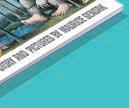
24 CHICAGO READER - JUNE 11, 2020 ll
R READER RECOMMENDED b ALL AGES N NEW F NOW
FILM



















JUNE 11, 2020 - CHICAGO READER 25 LIVE WITH PURPOSE 100% of profits go toward HIV/AIDS prevention and treatment in Illinois Learn how every play helps at IllinoisLottery.com
a room of
By JESSI ROTI
Imagine you’ve spent months at a time on the road with your band for more than two years running, bouncing between opening slots, festival appearances, and headlining sets in the U.S., Mexico, Canada, and Europe. You’ve been enthralling audiences with the frenetic yet tightly controlled energy of your immersive live show, supporting a bold and proudly unconventional debut album.
Now imagine that mere months from the release of your second full-length, all but guaranteed to explosively broaden your audience, you’re sidelined—not by the standard- issue music-industry evils (a soured major-label contract, a monopolistic booker) but by a force much more powerful and even more impersonal.
That’s the reality faced by many buzzedabout acts as COVID-19 continues to spread—
Chicago art-rock band Ohmme among them. Ohmme founders Sima Cunningham and Macie Stewart and their drummer, Matt Carroll, were supposed to hit the road in April opening for Waxahatchee, ahead of the June 5 release of Fantasize Your Ghost (Joyful Noise). Then they would’ve kicked o the west-coast leg of a headlining tour with their friend V.V. Lightbody.
Continued efforts to flatten the curve of the pandemic mean they’re now self-isolating separately and confined to livestreaming their performances. And like so many of us, they’ve been trying their hand at making focaccia and turning to astrology to try to make sense of the wrenching changes in the world.
“I made my first successful focaccia the other night,” Cunningham says. “My first one did not rise. Now, I’ve got it down pat.”
When Fantasize Your Ghost came out last week, its release coincided with the latest Bandcamp revenue-sharing day, when the platform waives its cut of sales to help artists and labels struggling during the pandemic. Rather than celebrate their album, the band chose to stand in solidarity with another struggle—the ongoing fight for Black lives that erupted again into the streets after the police killing of George Floyd. Ohmme donated their Bandcamp proceeds to Chicago nonprofi t Assata’s Daughters, a Black liberatory activist group formed by women, femmes, and gender-nonconforming people.
“We are asking for you to transform your support for us into support for our Chicago community and the Black Lives Matter movement,” Ohmme explained on Instagram. “Our record is about confronting the inevitability of change and the chaos, discomfort, beauty
Sima Cunningham (in black) and Macie Stewart formed Ohmme as a duo in 2014, then added drummer Matt Carroll in 2016.
and growth that can produce in a soul. Let’s all keep learning, keep going, and keep listening to Black voices.”
In the months since COVID-19 shut down the live-music ecosystem, Ohmme have played several online sets, sometimes sharing a room and sometimes remotely, including as part of Goose Island’s 312unes series and the Dr. Martens Presents: Stay In series (the latter included Carroll live from Denmark). When Carroll can’t participate, Cunningham and Stewart use his drum tracks or do without, as they did on May 10, when they played acoustically via Mayor Lightfoot’s Insta gram to benefi t the Arts for Illinois Relief Fund. They’re also scheduled to headline the first night of the Do Division Street Fest’s inaugural virtual edition on Friday, June 26.
The ten muscular tracks on Fantasize Your Ghost showcase the band’s intrepid spirit and clever control over their instruments, while their lyrics explore what it means and how it feels when you’ve become a stranger to the life you once knew. Meaningful relationships run their course and empty out; places and things you’ve built an identity around stop feeling significant. The album’s 40 minutes succinctly evoke the anger, clarity, pain, and joy that can come if you accept what comes next.
Cunningham, 30, and Stewart, 27, are nimble multi-instrumentalists and arresting singers, and they’ve collaborated widely throughout Chicago’s sprawling music communities, playing with artists working in rock, hip-hop, classical, folk, country, jazz, noise, and more. Between them they’ve worked with the likes of Chance the Rapper, Tortoise, Je Tweedy, and Twin Peaks.

Ohmme’s sound reflects their varied backgrounds and their classical training. The band might adopt the cadences and syncopation of hip-hop, take deep breaths of folk-rock simplicity, or erupt with the all-in ferocity of a freely improvised electric-guitar freak-out—and they can balance it all gracefully. Stewart and Cunningham don’t know exactly why their partnership works so much better than all their other musical relationships, but they’re grateful for it.
The band had planned for their debut full-length, 2018’s Parts , to “waterfall into” Fantasize Your Ghost , as Cunningham puts
26 CHICAGO READER - JUNE 11, 2020 ll MUSIC
ASH DYE
On Fantasize Your Ghost, Sima Cunningham and Macie Stewart make their music a place of trust, discovery, and compassion.
Tonight’s bill is booked by the Empty Bottle. Fri 6/26, 5:15 PM, West Town Chamber of Commerce, westtownchamber.org, $10 suggested donation, all ages
it—they’d hoped to weave its material into their sets on that canceled April tour with Waxahatchee. They see the albums as two facets of the same journey, but where the former looks outward at social norms—particularly those navigated by women, which were placed under a microscope before and after the 2016 presidential election—the latter turns its focus inward.
Fantasize Your Ghost also seems prescient in light of how state-mandated shelter-inplace orders and new e orts to phase in preCOVID activity have affected our relationships to daily existence. It can seem futile to try to control our lives and what’s happening around us, or even to wrestle with our desire to do so—and it’s especially di cult to put o uncomfortable questions.
“A lot of this record deals with contending with different versions of yourself,” says Cunningham. “The version you are right now was the version that, at some point in the past, you chose—and you kind of followed that for a while. You can start to feel a little hollow or feel you really need to bring yourself back to life in a different way to move forward. It’s about making those decisions.”
“Change is the only constant, as cheesy as it sounds,” Stewart adds. “It’s up to you to figure out how you approach and welcome it into your life—whether you’re up for it or fi ghting against it. Either one is worthwhile, but it’s about fi guring out how you want to respond while you can.”
Ohmme fi rst surprised audiences with an ambitious self-titled EP in 2015 (which was reissued two years later). Their aesthetic took shape early: haunting melodies, lyrics that read like riddles, and confident disruptions of pop-songwriting and instrumental techniques. They incorporate odd meters and unusual chord combinations so fl uidly that their sophisticated musical intelligence erases its own fingerprints, but at the same time they embrace “mistakes” and work to unlearn technically correct ways of doing things. It’s a way of fi nding the freedom to explore that they absorbed from the world of free improvisation.
Right from its first track, “Flood Your Gut,” Fantasize Your Ghost is daunting. Not because it’s ugly or confrontational, but because the distortion of pop convention creates uncertainty and suspense. The song captures a brooding tone, with an anxious guitar riff and rumbling bass, and Stewart and Cunningham deliver its angry lyrics in
a deceptively sweet style: “Have you found your stomach or your spine? / When I leave, they’ll eat you alive,” they coo. “One, two, three, you’re not your mother’s daughter,” they repeat, their honeyed vocals dissipating into murky strings. “Your whole vision’s not enough.”
As the album unfolds, its layers of overdubbed vocals and processed guitars evoke the turmoil that boils and bubbles inside a person as they outgrow their surroundings or who they thought they needed to be. Each track has its own urgent push and pull, and Stewart often punctuates the arrangements with intricate flurries of strings that can sound clean and sweeping or knotty and tortured.
Fantasize Your Ghost is as much of a call to action to reclaim one’s life (“3 2 4 3”) as it is a taunt, a challenge to, and an admonishment of those who lose themselves to the expectations of others. It describes opportunities for redefining your behavioral and emotional patterns (“The Limit,” “Spell It Out”) as well as for sabotaging yourself by kissing strangers or falling for fl attery from fl awed heroes (“Twitch”).
While Ohmme’s lyrics generally offer more questions than answers, the album’s closing track, “After All,” comes closer than most to a resolution; it also has the most familiar, traditional melody, tinged with 60s vocal-group pop. Unambiguously about having compassion for yourself, it’s a reminder for women to stand firm and create their own spaces in a society that demands they shrink themselves. “Lonely girl, it’s OK / Take a breath, get away / Seek your cocoon,” they sing, with Stewart’s sweet, high voice fl oating above Cunningham’s warm, cozily wornin one. “Lonely girl, you’re enough / Take a breath, loosen up.”
Stewart thinks she and Cunningham were picking up on a low-grade crisis in their corner of Chicago’s music scene. “In our community, everyone was working like crazy,” she explains. “Maybe not taking the time for themselves that they needed to take in order to be fully present in any given moment. I think, whether or not we realized it, we were tuned into that. We’re defi nitely tuned into that on a personal level, and it makes sense our songs would come out that way.”
Stewart and Cunningham founded Ohmme in 2014 with the intention of pushing the boundaries of guitar music, which soon evolved into their “un-
learning” approach. “Guitar music encompasses such a vast variety of music from so many different cultures that the idea of boundaries begin to dissipate, and you realize that it really can be anything,” Stewart says. “I think that’s the biggest takeaway for us. There’s no one correct way to do anything, no end-all, be-all technique for achieving something. The most important thing is to have an idea and try to use the tools you have in front of you to execute it. At the moment, that happens to be the guitar.”
They both play guitar, with Stewart sometimes switching to bass or violin. Both sing, usually together, and treat their voices as equally important instruments with their own distinct roles. Even without a drummer, they “fi ll a lot of space,” as Stewart puts it. “Because we’re both able to play multiple instruments and multitask, we can do the work of a much larger band.”
Because Ohmme have never tried to tour with more than three musicians, they’ve been able to do so more frequently. But Stewart’s arrangements on Fantasize Your Ghost did raise the question of traveling with a string section.
“We’re not gonna tour with a string section,” says Cunningham, deadpan. “We’ll make di erent arrangements. But that being said, there’s a lot of strings on the record. We had some fun, special shows planned in Chicago and a couple other cities, and Macie’s such a great string arranger—she was going to reach out to di erent local string sections. That’s something we’ll bring back at some point, but just not in the near future.”
Stewart and Cunningham work together as a unit so seamlessly it seems instinctual. They describe their relationship as equal parts intense artistic partnership, deep friendship, and sisterhood; they share their own verbal and nonverbal language, onstage, o stage, and in the studio.
Carroll, 30, joined Ohmme in 2016, and because he’s the only other person who’s ever been a member of the group, he’s part of the family. Cunningham says he sometimes gives his bandmates shit for bickering in rehearsal.
“When me and Macie get up in our heads too much, he shakes us out of it,” she says. “Matt is really just a source of joy. When we brought Matt into the band, musically, it created this kind of centrifuge for us. He’s at the center, at the middle—able to bend out with us but also really hold it together back there. He’s always egging us on from behind the drum set.”
The two women were acquainted before starting Ohmme: Cunningham often guested in Marrow, an indie-rock band Stewart cofounded in 2013. By then they’d known each other for years—Stewart was an original member of Kids These Days, a genre-bending hip-hop/funk/soul/pop group cofounded in 2009 by Vic Mensa and Cunningham’s brother, Liam Kazar. After Kids These Days split up in 2013, Stewart and Kazar formed Marrow with Carroll, their former bandmate Lane Beckstrom, and Dorian Gehring, who’d become Ohmme’s longtime engineer.
Stewart, a keenly melodic improviser, joined the explorative, high-energy jazz quintet Marker, led by veteran reedist Kevin Vandermark and including three other young Chicago musicians, in 2016. Cunningham spent 12 years in the Chicago Children’s Choir and released her debut solo album, Time Is Never Your Friend , in 2010. She’s been involved in several bands, and for more than a decade she’s done event production and promotion work around the city.
After debuting in July 2014 at the Postock Festival, an annual DIY music celebration in rural Wisconsin that Cunningham has presented since 2008, Ohmme played their first Chicago show that September at Constellation. (They were initially called Homme— French for “man”—but made the change to avoid confusion with a South Korean duo of the same name.) Cunningham had started booking the long-running singer-songwriter series I Hear Voices at Constellation shortly after drummer and arts presenter Mike Reed (perhaps most famous as founding director of the Pitchfork Music Festival) opened the venue in 2013, and she and Stewart were enamored with the shows there. After a Marc Ribot concert at Constellation in May 2013, they got to talking shop, planting seeds for what would become their current approach to progressive music.
“A lot of the early part of this band was coming out of the improvised-jazz world. We were both going to Constellation a lot,” Stewart says. “It was just really inspiring to see instruments played and music played with such intention. Being able to just improvise and go—letting sounds be what they are and exploring textures rather than feeling you have to fit them into the constraints of whatever arbitrary rules there are.”
Stewart and Cunningham’s friend Vivian McConnell, aka singer-songwriter V.V. Lightbody, opened for them at their debut show.
JUNE 11, 2020 - CHICAGO READER 27
DO DIVISION VIRTUAL STREET FEST NIGHT ONE FEATURING OHMME, FRAN, WE WERE PROMISED JETPACKS (SOLO), AND WYATT
WADDELL
MUSIC
“They really excite me,” she says. “When I see them doing stu with the guitar that I haven’t seen anybody do or wouldn’t have thought of—I’m just blown away.”
The three of them met when McConnell’s old band Grandkids shared a bill with Marrow at Schubas in March 2014. They’ve been going to each other’s gigs ever since, and McConnell calls Ohmme her “band besties.”
“I will never, ever forget—people were losing their shit when they played ‘Woman,’” she says. “People were screaming. It was insane. It’s crazy, because that energy—that happens to this day when they play that song at shows. Just them as musicians really struck me—it still does. And they’re friends of the scene: they grew up in Chicago and have just been so supportive.”
A 2017 Noisey piece called Ohmme “the band at the heart of Chicago’s music community,” and McConnell echoes that sentiment— not only as a fellow musician but also as another woman rejuvenating and recasting a male-dominated genre. Stewart played violin arrangements for three songs on the latest V.V. Lightbody album, Make a Shrine or Burn It , and Cunningham provided vocals on the single “Horse on Fire.”
“Sonically, we’re very di erent,” McConnell says, “but I also think there are certain things we do that place us in our own little nook— they’re still songs, but take on a different shape and complexity that’s indicated by what we do with our instruments. They’ve helped me realize my own inconsistencies, but always in a positive way. Women, especially women musicians—singing and working with them lifts me up. They’re very encouraging. They’ve inspired me to do more with my instrument and vice versa.”
McConnell describes the X factor that sets Ohmme apart: “Trust—and having so much confidence and trust that whatever they do is going to be good,” she says.
That dynamic is apparent even to people working with Ohmme for the first time. Indie-rock veteran Chris Cohen (formerly of Deerhoof, the Curtains, and Cryptacize) produced Fantasize Your Ghost over five days in August 2019, and he felt it right away: “They’re special people,” he says. “I always feel that way about the people I work with, but they have a really special touch.”
Cohen joined Ohmme and Gehring at a
makeshift studio they’d put together in a barn in Wisconsin, on the farm where Cunningham hosts Postock. “I just really encouraged them to play as loud as they could,” Cohen says. Playing loud wasn’t a problem, but the vocals needed to match that power.
Ohmme drew inspiration from Bulgarian women’s choruses and Abba, particularly for the keening close harmonies of the loss-ofinnocence song “Selling Candy.” Their goal was to just open their mouths and “push out sound.”
In spring 2019 the band had tracked a few early demos for Fantasize Your Ghost while on the road in upstate New York. Then they went in search of a producer. Stewart has been a fan of Cohen’s old band Deerhoof for years, and more recently Cunningham heard some of his solo albums through Twin Peaks multi- instrumentalist Colin Croom. The pair also liked Cohen’s production on Weyes Blood’s 2016 album Front Row Seat to Earth
Ohmme squeezed in those five days of tracking between their tours and Cohen’s. Between August 2019 and the end of the year, they mixed the album in Chicago with Dave Vettraino at Public House Sound Recordings and mastered it with Shelly Ste ens at Chicago Mastering Service. The relatively brief window the band had available to record pushed them to focus their explorations. Cohen encouraged them to venture into new approaches and techniques, modify their harmonies, and more. Nothing was o limits.
“It was very intense. We did a lot of work every day,” he says. “I felt like I got where they were coming from. They’re into improvised music, and I liked that they were adventurous. And obviously, they could sing really well together.
“My role was to help them get sounds,” Cohen continues, “to be another opinion, make suggestions for overdubs. They had the material, and they had worked it out quite a bit on their own. I don’t try to get in there and pull everything apart. My job is just kind of setting a tone in the room—making people feel comfortable to try things while keeping them on track.”
The barn was weathered, with gaps in the walls that left it open to the elements—Cohen remembers birds living inside, and of course lots more outside. Their singing, the buzzing of insects, and other environmental sounds almost act as a thread through Fantasize Your Ghost. The juxtaposition of this pastoral ambience with Ohmme’s pissed-o songs adds a
layer of tension to the album.
“Recording in the barn, there were definitely a lot of room mikes placed around to capture the breadth and feeling of the room,” Cunningham recalls. “There’s actually a silo next to the barn, so we put a mike in there and re-amped the whole session through there so we could play around with that as this enormous reverb chamber.”
Cohen remembers the band having fun with the setting they’d chosen for their sessions. “I think everyone was excited to treat it like it was a performance and just play into this big, open space,” he says. “I usually like to record where there are less unknown factors, but it wasn’t a problem at all. It was really cool. It turned out to be a good choice.”
Cunningham feels the same way about choosing Cohen to produce. “Chris Cohen was definitely the right energy to bring onto this record, at a time where we were both feeling very chaotic, feeling the turmoil and wanting to translate that into the art and also find calm in it,” she says. “But you kind of need tension to make music great sometimes, but you also really want to find a way to—”
“You’ve got to take care of yourself,” Stewart finishes.
“It was kind of a marathon getting to the recording session, and it was going to be a marathon right after the recording session,” Cunningham continues. “We knew we had this huge fall coming up. We were just trying really hard to create this special bubble of time, and Chris was a big part of that—and a big part of why I think the record carries this kind of shimmering beauty to it, in its foundation.”
That August week in Wisconsin fell under the Sturgeon Moon—an old name for the full moon that happens in August, because Indigenous people associated that time of year with a surge in numbers of sturgeon in the Great Lakes. The word “sturgeon” means “stirrer” in several European languages, and it describes the way the fi sh searches for sustenance—as well as Ohmme’s approach to songcraft. They stir up the material that’s settled to the bottom, the foundation, hoping to find something hidden, forgotten, or new.
Ohmme named the lone instrumental track on the new album “Sturgeon Moon,” and it’s the fi rst and so far only track of its kind they’ve released—a nightmarish, free-form fl ood of beautiful noise. “It felt totally right to put an improvised track on this record, as
a nod to our beginnings,” Stewart says. “A lot of the early part of this band was coming out of the improvised-jazz world. It brings up so much raw joy and satisfaction that I think you can feel in the track too. It’s kind of chaos, but it’s directed chaos.”
Ohmme have had much more time than they expected this spring to prepare for the release of Fantasize Your Ghost , and for the time being, they’re considering the possibilities of what a show should feel and sound like when they play it. With Carroll now living in Denmark with his wife and newborn son (he comes back to tour), they’ve had to work on live arrangements of the new album’s songs without him, isolating his drums tracks and working around those. By the time the pandemic suspended touring, they’d played only three of its singles onstage, opting to keep a lid on the new material for maximum freshness.
Stewart says they’re hoping Ohmme’s dates with Waxahatchee, now pushed from April into September and October, don’t have to be rescheduled a second time. For now, they’ve put o a headlining tour to support Fantasize Your Ghost till their shows with V.V. Lightbody in January 2021, hoping the wait won’t be even longer.
Whenever it happens, Ohmme are ready. Creating the new album has reinforced the strength of the bond between Stewart and Cunningham as well as the purpose of their band: as Cunningham puts it, “exploring doors of creativity that are only opened up through our partnership.”
Stewart believes that partnership is still growing stronger. “We both understand each other—especially after making this record and touring so much over the last year—fundamentally better than we ever have before,” she says. “I think whatever music we make going forward, or whatever the band is going forward, is coming from an even more trusting place.
“The both of us are very headstrong, very ‘figure out a solution for it,’ and we can both get down on ourselves if we can’t do those things necessarily or we feel like we failed at something. Us having more compassion for ourselves and for each other will make it fruitful going forward. There’s still so much more out there left to discover, even just between the two of us and how we create. That’s an exciting prospect.” v
@JessiTaylorRO
28 CHICAGO READER - JUNE 11, 2020 ll
MUSIC continued from 27
Men’s Virility Restored in Clinical Trial; 275% More Blood Flow in 5 Minutes

A newly improved version of America’s best-selling male performance enhancer gives 70-year-old men the bedroom performance they enjoyed in their 30’s.
America’s best-selling sexual performance enhancer just got a lot better.
It’s the latest breakthrough for nitric oxide – the molecule that makes erections possible by increasing blood ow to your penis.
Nitric oxide won the Nobel Prize in 1998. It’s why “the little blue pill” works. More than 200,000 studies conrm it’s the key to superior sexual performance.
And this new discovery increases nitric oxide availability resulting in even quicker, stronger and longer-lasting erections.
One double-blind, placebo-controlled study (the “goldstandard” of research) involved a group of 70-year-old-men.
They didn’t exercise. They didn’t eat healthy. And researchers reported their “nitric oxide availability was almost totally compromised,” resulting in blood ow less than HALF of a man in peak sexual health.
But only ve minutes after the rst dose their blood ow increased 275%, back to levels of a perfectly healthy 31-yearold man! “It’s amazing,” remarks nitric oxide expert Dr. Al Sears. “That’s like giving 70-year-old men the sexual power of 30-year-olds.”
WHY SO MUCH EXCITEMENT?
Despite the billions men spend annually on older nitric oxide therapies, there’s one well-known problem with them.
They don’t always work.
Dr. Joseph Loscalzo explains why. He’s studied nitric oxide for over 43 years. He is the physician-in-chief at Brigham and Women’s Hospital. He says a “deciency of bioactive nitric oxide… leads to impaired endothelium-dependent vasorelaxation.”
In plain English, these older products may increase levels of nitric oxide. But that’s only half the battle. If it’s not bioactively available then your body can’t absorb it to produce an erection.
Experts simply call it the nitric oxide “glitch.” And until now, there’s never been a solution.
NEXT GENERATION NITRIC OXIDE FORMULA FLYING OFF SHELVES
Upon further research, America’s No. 1 men’s health expert Dr. Al Sears discovered certain nutrients x this “glitch” resulting in 275% better blood ow.
He’s combined those nutrients with proven nitric oxide boosters in a new formula called Primal Max Red. In clinical
trials, 5,000 mg is required for satisfying sexual performance. Primal Max Red contains a bigger, 9,000 mg per serving dose. It’s become so popular, he’s having trouble keeping it in stock.
Dr. Sears is the author of more than 500 scientic papers. Thousands of people listened to him speak at the recent Palm Beach Health & Wellness Festival featuring Dr. Oz. NFL Hall of Fame quarterback Joe Namath recently visited his clinic, the Sears Institute for Anti-Aging Medicine.
Primal Max Red has only been available for a few months — but everyone who takes it reports a big difference. “I have the energy to have sex three times in one day, WOW! That has not happened in years. Oh, by the way I am 62,” says Jonathan K. from Birmingham, AL.
HOW IT WORKS
Loss of erection power starts with your blood vessels. Specically, the inside layer called the endothelium where nitric oxide is made.
The problem is various factors THICKEN your blood vessels as you age. This blocks availability causing the nitric oxide “glitch.” The result is difculty in getting and sustaining a healthy erection.
How bad is the problem?
Researcher shows the typical 40-year-old man absorbs 50% less nitric oxide. At 50, that drops to 25%. And once you pass 60 just a measly 15% gets through.
To make matters worse, nitric oxide levels start declining in your 30’s. And by 70, nitric oxide production is down an alarming 75%.
Primal Max Red is the rst formula to tackle both problems. Combining powerful nitric oxide boosters and a proven delivery mechanism that defeats the nitric oxide “glitch” resulting in 275% better blood ow and stronger erections. There’s not enough space here to fully explain how it works, so Dr. Sears will send anyone who orders Primal Max Red a free special report that explains everything.
MORE CLINICAL RESULTS
Nutrients in Primal Max Red have logged impressive results.
In a Journal of Applied Physiology study, one resulted in a 30 times MORE nitric oxide. And these increased levels lasted up to 12 hours.
“I measured my nitric oxide levels, you can buy a test kit from Amazon,” reports 48-year-old Jeff O. “Monday night I showed depleted.”
A new discovery that increases nitric oxide availability was recently proven in a clinical trial to boost blood flow 275% resulting in even quicker, stronger and longer-lasting erections.
Then he used ingredients in Primal Max Red and, “The results were off the charts. I rst woke around 3 a.m. on Tuesday with a throbbing boner. My nitric oxide levels measured at the top end of the range.”
FREE BONUS TESTOSTERONE BOOSTER
Every order also gets Dr. Sears testosterone boosting formula Primal Max Black for free.
“If you want passionate ‘rip your clothes off’ sex you had in your younger days, you need nitric oxide to get your erection going. And testosterone for energy and drive,” says Dr. Sears. “You get both with Primal Max Red and Primal Max Black.”
HOW TO GET PRIMAL MAX
To secure free bottles of Primal Max Black and get the hot, new Primal Max Red formula, buyers should contact the Sears Health Hotline at 1-800-586-8354 within the next 48 hours. “It’s not available in drug stores yet,” says Dr. Sears. “The Hotline allows us to ship directly to the customer.”
Dr. Sears feels so strongly about Primal Max, all orders are backed by a 100% money-back guarantee. “Just send me back the bottle and any unused product within 90 days from purchase date, and I’ll send you all your money back,” he says.
The Hotline will be open for the next 48 hours. After that, the phone number will be shut down to allow them to restock. Call 1-800-586-8354 to secure your limited supply of Primal Max Red and free bottles of Primal Max Black. You don’t need a prescription, and those who call in the rst 24 hours qualify for a signicant discount. Use Promo Code NP0620PMAX41 when you call in. Lines are frequently busy, but all calls will be answered.
JUNE 11, 2020 - CHICAGO READER 29
THESE STATEMENTS HAVE NOT BEEN EVALUATED BY THE FOOD AND DRUG ADMINISTRATION. THIS PRODUCT IS NOT INTENDED TO DIAGNOSE, TREAT, CURE OR PREVENT ANY DISEASE. RESULTS MAY VARY
BREAKING NEWS... PAID ADVERTISEMENT 322977_10_x_9.875.indd 1 6/1/20 4:51 PM
in










ON THEIR NEW SELF-TITLED debut album, Muzz simultaneously challenge listeners and envelop them in gentle, sublime atmospheres. The New York-based trio formed out of the long friendship of vocalist and guitarist Paul Banks (Interpol), multi-instrumentalist Josh Kaufman (Bonny Light Horseman), and drummer Matt Barrick (Jonathan Fire*Eater). Individually, these artists are known for their musical malleability, and their chemistry together is undeniable. Banks is a master at concocting disarmingly murky anthems tinged with just the right amount of melodrama, and in Muzz he leans into malaise with precision. The album’s opening track, “Bad Feeling,” sets the tone with its immersive rumination and wistful melodies, while “Evergreen” meanders experimentally but never strays too far from total sonic ecstasy. Lead single “Red Western Sky” embodies the band’s
allure: cinematic soundscapes give way to exhilarating buildups and mercurial, borderline cosmic harmonies. The delicate, elegantly melancholy piano on “Broken Tambourine” makes the light-hearted, jovial “Knuckleduster” the perfect follow-up. The rhythmic dexterity of “Chubby Checker” gives it an insatiable energy that resonates beyond the track’s less than three-minute length. “Summer Love” is simple in its longing, and “All Is Dead to Me’’ feels more resilient than its title lets on. Though Muzz has no overall theme, it conjures up softness, warmth, and a bit of mystery. The band’s biggest asset is their unpredictability, whether their songs are full of fl owery euphony or somber confessions. These veteran musicians have crafted a gleaming epistle of sophisticated pop art—Muzz have raised the bar for indie rock. —CANDACE MCDUFFIE

30 CHICAGO READER - JUNE 11, 2020 ll
Muzz, Muzz Matador muzztheband.bandcamp.com/album/muzz PICK OF THE WEEK Interpol side project Muzz bask
unpredictability on their debut album Recommended and notable releases and critics’ insights for the week of June 11 MUSIC DRIELY S JUNE 13 Sophia Lucia’s Freak Show Cabaret (EVENT REPEATS WEEKLY) @ OnlineSAT JUNE 12 Wisecrackin’ (EVENT REPEATS JUNE 20) @ Online FRI to add your event to TIXREADER.COM and see it listed here weekly, please send an email to mroeder@chicagoreader.com SUBMIT YOURS FOR FREE at chicagoreader.com/matches DATING APPS GOT YOU DOWN? Try finding someone the old-school way.
Civic Center, The Ground Below American Dreams civiccenter.bandcamp.com/album/the-groundbelow
Local postpunk label Chicago Research quickly became a locus for bizarre, depraved sounds after launching in February 2019, in part because the people involved are longtime friends as well as like-minded musicians. Industrial surrealists Civic Center put out one of the label’s first releases (a cassette called A Place for the Weak), and all three members also have other bands or projects with music on Chicago Research. Front man Jack Brockman records mutant coldwave as Understudy; bassist Clementine Wink masterminds the psychedelicleaning Hen of the Woods; and synth player Blake Karlson, who founded the label, makes experimental solo tracks as Lily the Fields (he’s also fronted postpunk trio Product KF, though they’re on hiatus). Karlson says that he and his Civic Center compatriots find it easy to write lots of material, and in their year and a half as a band they’ve released four cassettes and one compilation through Chicago Research. The group’s vinyl debut, The Ground Below , arrives through American Dreams Recordings, a local label founded by experimental musician and Reader contributor Jordan Reyes. (In May he released a cassette of his own on Chicago Research, Broken Sleep, and he’s also a member of Ono, whose new Red Summer came out via American Dreams.) Much of Civic Center’s back catalog sounds the way burning plastic smells during its toxic liquefaction, but The Ground Below dials back their most aggressive inclinations. On “Fly on the Wall,” Civic Center gird Brockman’s restrained, echoing vocals with minimal percussion and austere bass, demonstrating how well they can transmute their haunting affectations into dance music.
El Shirota, Tiempos Raros Devil in the Woods elshirota.bandcamp.com/album/tiempos-raros-2
The debut album of Mexico’s El Shirota, Tiempos Raros (“Weird Times”), resonates mightily as the world convulses from the effects of America’s racist violence in the midst of a global pandemic. Founded by lead singer and guitarist Ignacio Gomez in 2013, the band went through several lineup changes before settling on their current configuration in 2018: Gomez, guitarist Ruben Anzaldúa, bassist David Lemus, and drummer Gabriel Mendoza. El Shirota’s smart postpunk melange, with its intentional rawness and volatile edge, connects the dots between Nirvana, Weezer, and the sounds of Mexico City’s rock scene from the 90s till today.
Despite the band’s classic indie influences, their sound is unpredictable and fresh; on tunes such as “El Bob Rosendo” they fracture and filter their DIY aesthetic through the prism of Mexico’s distorted, sludgy, slowed-down cumbia and the carefree rebellion of its 60s rock scene. The band’s masterful control of dynamics ensures their songs never become monotonous: on “Más de Una Vez,” growling, yelling, and overdriven guitars alternate with elegant lyricism, while “La Ciudad” trades off punk eruptions and classic-rock grooves, then ends with a cathartic explosion that slides into slinky, psychedelic guitar twang. Over the past few days, I’ve had the hazy earworm “A Donde Voy” in my head.

When Gomez sings, “No sé si desperté / Oscuro amaneció / Pero entendí que ayer no estaba igual que a donde voy” (“I don’t know if I woke up / It was dark at dawn / But I understood that yesterday is not the same as where I’m going”), it reminds me that we’re living in a time of more questions than answers.
—CATALINA MARIA JOHNSON
JUNE 11, 2020 - CHICAGO READER 31
—LEOR GALIL
MUSIC
El Shirota
COURTESY THE ARTIST A virtual event streaming live on Facebook and welcoming Midsommarfest favorites 16 Candles, Dancing Queen: An ABBA Salute, CATFIGHT and more! MORE INFO AT: andersonville.org/midsommarfest DONATE IN ADVANCE: Venmo: @AvilleChamber Thank you to our Media Sponsor
MUSIC

more music
at

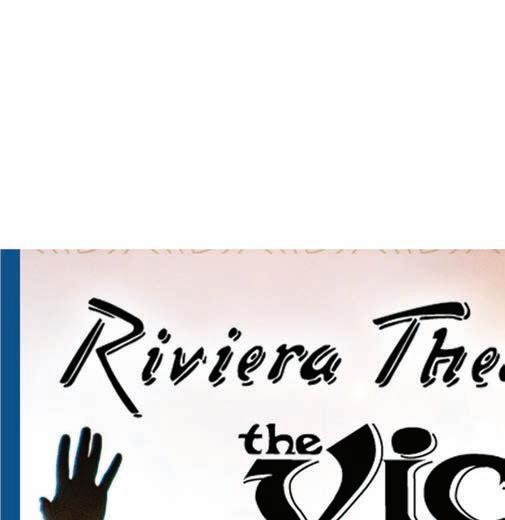
from
Thomas Davinci, Home Grown Self-released thomasdavinci.bandcamp.com/album/homegrown
Chicago singer, producer, and rapper Thomas DaVinci is a chameleon, able to adapt his supple voice and fl uid fl ow to any instrumental track. On his album Home Grown , which he self-released in May, he applies his versatility to a broad swath of stylish sounds, including a few that wouldn’t quite fit together without him. Granted, he produced all but one of the record’s songs, and it’s hard to throw yourself a curveball, but he creates a confident through-line connecting the white-knuckle boom-bap percussion and plastic neosoul synths of “Destinfi nity,” the melancholy harplike notes of “Toxic,” and the summery, nostalgic melody and minimal 808 beats of “Just Another Day.” Though a few of the songs sag, DaVinci’s performances never feel like filler—he delivers tough-as-nails raps with expert precision and croons with a nuanced sensuality that’ll help you stop pining for a new Frank Ocean album. —LEOR GALIL

Daweirdo, Broke and Ugly and No Face Mckinney Self-released soundcloud.com/young-hoodchiano

Englewood MC Darrel Mckinney makes music as DaWeirdo, which is a pretty obvious clue that his approach is unusual. He warps his raps with animated squeaks that leap out of his mouth a couple times per line; at his wildest, he sounds like a bristling cat clinging desperately to a shoddy roller coaster. Mckinney’s vocal affectations can be unsettling, but that’s the point: he raps about systemic racism and disinvestment in Chicago’s Black com-
munities, and his teetering flow and deliberately unstable inflections amplify the painful surreality of facing a world that constantly tells you that you’re disposable. Last month, Mckinney self-released two intertwined EPs, Broke and Ugly and No Face Mckinney . The former ends with a recording of a woman speaking: “Growing up, my son had a split personality, which I didn’t believe until later. There were so many internal battles that he called himself ‘No Face Mckinney.’” Mckinney does justice to his pathos-laden songs with needling performances that demand listeners pay attention to every detail.
—LEOR GALIL

Unsound
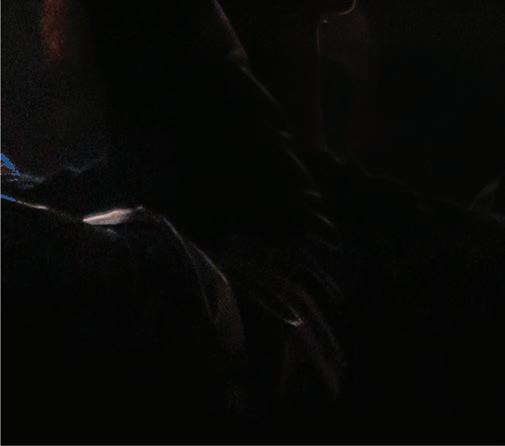
unsounds.bandcamp.com/album/pavilion
Cypriot composer and electronic musician Yannis Kyriakides uses polyphonic vocal arrangements, string sections, glitchy beats, and found-sound collages to articulate wordless experiences and evoke things lost or removed. English electric guitarist Andy Moor is best known for playing with the Ex, a band that has never abandoned the principles or ferocity of its punk roots, but whose music can’t be contained within any known genre. He also works in free-form settings, not just with Kyriakides but also with the likes of Ken Vandermark and John Butcher. As a duo, Kyriakides and Moor have o en used broken shards of Portuguese and Greek folk songs as starting points for freewheeling improvisations, but on Pavilion , they’ve edited their extemporaneous playing into a set of compositions. In 2017, as part of the 57th Venice Art Biennale, they took up residence in the Studio Venezia, an oddly shaped environment in the French pavilion that contained fanciful sculptures of instruments and some high-end studio gear. They played for three days while art patrons came and went, and ultimately compiled
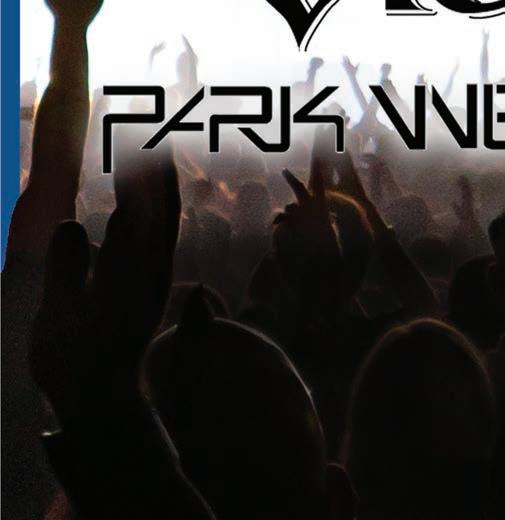
32 CHICAGO READER - JUNE 11, 2020 ll
Yannis Kyriakides & Andy Moor, Pavilion
continued
31
Find
reviews
chicagoreader.com/soundboard
Thomas DaVinci MARY GENTRY
MUSIC











nine hours of recordings—which they cut down to this album-length collection. The music they produced is much more jagged than the clean lines of the room in which they made it, but it nonetheless feels like it was sculpted to emphasize textures and shapes, instead of the melodies that define the duo’s other work.
—BILL MEYER

Owen, The Avalanche Polyvinyl















owenmusic.bandcamp.com/album/the-avalanche
Few indie-rock artists are more prolific than singersongwriter Mike Kinsella, who’s been playing in Illinois bands since the late 80s, including Cap’n Jazz, Joan of Arc, and American Football. The latter band reunited in 2014 following a 14-year break and subsequently released two acclaimed albums, 2016’s American Football (or LP2 ) and last year’s American Football ( LP3 ). Now the singer and multi-instrumentalist is set to release The Avalanche (Polyvinyl), the tenth studio album from his solo project, Owen. Produced by Bon Iver drummer and fellow musical Swiss army knife Sean Carey (who recorded Owen’s ninth LP, The King of Whys), the nine-song album is typical Kinsella: full of beautiful, intricate melodies, lush arrangements, and naked lyrics. Whatever the project, Kinsella pours his life into his writing, and The Avalanche is no exception. His lyrics on last year’s American Football LP were metaphorical and opaque, with allusions to heartbreak, self-medication, and a broken father-son relationship. By contrast, The Avalanche is straightforward about his personal issues, and frankly addresses the end of his marriage. Over the folksy acoustic melody, hushed brush strokes, and pedal steel of “Dead for Days,” Kinsella sings, “Now I’ve got friends that don’t know me / A wife that’s disowned me / You in concept only to miss / And I’ve been sober for over two weeks.” Accompanied by the light alt-country vibe of “The Contours,” he confesses, “I’m in therapy / She’s in therapy / Turns out all the answers are just questions / For next week’s sessions.” But perhaps most cutting is “Mom

and Dead,” which is also the album’s most musically emotive song, with cascading guitars and a beautiful glockenspiel sequence over descending bowed cello. As the track slowly climaxes, Kinsella sings, “How can you live without me? / Who’ll pour your drinks? / Who’ll make your heart beat?” It’s o en said that pain makes for great art, and The Avalanche is the latest proof. —SCOTT MORROW
swEet Whirl, HOw Much WOrks Chapter sweetwhirl.bandcamp.com/album/how-muchworks


With all the unrest and pain in the U.S. right now, it can feel strange or wrong to listen to an album of calm, airy songs that recall sunnier days, even if those days were sometimes bittersweet. But in a way it’s just like massaging an extremely tense muscle: if you can keep leaning into the bad feeling, you’ll be rewarded with some relief. In that respect, How Much Works , the new album by veteran Melbourne singer-songwriter Ester Edquist, aka Sweet Whirl, feels a bit like a balm—despite the melancholy mixed into its warm, easygoing songs.




Edquist plays the bulk of the instruments on the album herself (Casey Hartnett contributes guitar and Therevox synth, while Monty Hartnett adds drums), and she creates a variety of moods that recalls classic songwriters such as Carole King and Joni Mitchell, albeit with a minimalist flavor indebted to contemporary bedroom recordings and lowkey shows in DIY spaces. The twists and turns can be delightful: opening track “Sweetness” combines 70s FM quirkiness with a sleek, jazzy melody, and the following song, “Weirdo,” captures a countrytinged vibe just as convincingly. The album’s most poignant track might be the wistful, atmospheric “Something I Do,” where Edquist sings about loving someone but not being willing to relinquish her autonomy for a conventional relationship; sometimes it’s necessary to break our own hearts in order to fulfill our dreams. —JAMIE LUDWIG v

JUNE 11, 2020 - CHICAGO READER 33
Mike Kinsella of Owen COURTESY POLYVINYL RECORDS
MONEY+ POWER Visit ChiUL.org/moneyandpower BIT.LY/GOOSEDELIVERS
Vince Lawrence’s greatest moment in Chicago music history
The
By VINCE LAWRENCE AND AYANA CONTRERAS
Not only is 2020 the Year of Chicago Music, it’s also the 35th year for the nonprofit Arts & Business Council of Chicago (A&BC), which provides business expertise and training to creatives and their organizations citywide. To celebrate, the A&BC has launched the #ChiMusic35 campaign at ChiMusic35.com, which includes a public poll to determine the consensus 35 greatest moments in Chicago music history as well as
a ra e to benefit the A&BC’s work supporting creative communities struggling with the impact of COVID-19 in the city’s disinvested neighborhoods.
Another part of the campaign is this Reader collaboration: a series spotlighting important figures in Chicago music serving as #Chi Music35 ambassadors. This week, we hear from businessman, producer, and promoter Vince Lawrence. A key figure in
the early history of Trax Records, he shares credit with high school friend Jesse Saunders for what’s widely considered the first house-music release, the 1984 classic “On and On.” Lawrence’s vast music-business resumé also includes cowriting the 1986 Farley “Jackmaster” Funk hit “Love Can’t Turn Around,” the first house record to chart in the UK.

This interview was conducted by Ayana Contreras, who’s a DJ, a host and producer at WBEZ radio, and a columnist for DownBeat magazine.
Ayana Contreras: Why do you think Chicago has this history of creating artists that resonate worldwide?
Vince Lawrence: I think that Chicago being divested from the mainstream record business has created a different standard of excellence for artists that are requesting support. The record business will sign ten acts, knowing that one of them will cover the cost of all. But with a typical investor in Chicago, rather than try nine shots at the apple, they just want to get one that works.
And because of that, the bar for excellence is just astounding. Chicagoans are hardened, groomed, and polished until
they’re the best that they can be.
What’s one of your favorite Chicago music moments?
There was a party that we threw at Sauer’s called Izod Fest. I want to say [the fi rst one] was ’79 or ’80.
Our peer group had come to distinguish itself by the straight-leg Levi’s, K-Swiss, and Izod movement that took over middle class Black America in the early 80s. And we faced a dilemma of less-than-desirable factions busting up our parties with fighting and other disruption. We banded together and said, “How can we keep these bad kids out of our parties?”
We decided that our desired customer was this kid from Hyde Park who wore Izod. So we said, “Let’s throw a party that requires you wear that for admission. Or at least require that you wear that to get a discount.”
And we had Farley (Farley “Funkin” Keith was his name at the time), Jesse Saunders, and a bunch of other DJs. Our party would go to three or four in the morning, and it was a pretty awesome time.
You guys were young, right? Late teens, early 20s?
Seventeen-year-old kids, renting restaurants [a er hours]! We would take all of the tables and move them to one side of the room. Then we would bring in the sound system, put some police lights on top of that, and have DJs.
We’d pass out flyers all over town . . . in front of schools that we didn’t go to. We thought that we would get maybe a 5 percent return on flyers. So we’d print 10,000 flyers and hope we get a thousand kids. And we would.
That’s powerful, especially for folks so young.
It was a great time to be a young Black person trying to do something, because you could. And it seems that all of us that were involved in that are, in one aspect or another, self- employed businesspeople to this day.
34 CHICAGO READER - JUNE 11, 2020 ll MUSIC COURTESY THE ARTIST
v @vingoslang #CHIMUSIC35
house-music pioneer remembers the huge scene-defining parties he helped throw as a teenager.
EARLY WARNINGS
WOLF
WYATT WADDELL dropped the remarkable new single “Fight!” on Wednesday, June 3, and it vibrates with the grief, rage, and revolutionary purpose that millions of Americans have been demonstrating since the killing of George Floyd. “This song is me looking at what’s happening and what I’d tell the people protesting,” says the local singer-songwriter and multi- instrumentalist. Waddell recorded the track—with its pumping funk instrumentation and a roof-raising choir of his multitracked vocals—alone in a single day. “I hope that it can be an anthem for my people,” he adds. “Fight!” is a pay-whatyou-want Bandcamp download, and he’s pledged to pass all donations along to the Chicago Community Bond Fund , Black Lives Matter Chicago , and the Greater Chicago Food Depository . He’ll also stream a set as part of the first virtual Do Division Street Fest on Friday, June 26.
Chicago rapper Femdot launched the nonprofit Delacreme Scholars in 2018 to help Black and Brown college students; this past semester, it gave six Illinois and Indiana students scholarships and clothes. Last week, after CPS briefly suspended its food-delivery program, Delacreme Scholars began food-distribution efforts serving the west and south sides. Those in need can e-mail delacremescholars@ gmail.com; you can use that address to donate via Zelle or QuickPay (or use $delacremescholars on Cash App).
On Friday, Chicago polymath Nnamdï self-released the EP Black Plight through Bandcamp. Snaggletoothed guitars, rambunctious bass, and athletic drumming tangle in its freewheeling protest songs— the seesawing “Rage” conveys the anger and anxiety he feels seeing police kill people who look like him. Black Plight sold so well on “Bandcamp day” that Nnamdï made more than $10,000; he’s giving $4,000 to Assata’s Daughters and to EAT Chicago and directing the rest to Chicagoans who need help with food or housing.
—J.R. NELSON AND LEOR GALIL
Got a tip? Tweet @Gossip_Wolf or e-mail gossipwolf@chicagoreader.com.

NEW
Andersonville at Home featuring Mel Senese, Molehill, Oh Yeahs, Lynne Jordan & the Shivers, and more 6/12, 6 PM, livestream at facebook.com/ andersonville F b
Jimmy Buffett 6/20, 7 PM, livestream at margaritaville. tv/live b
Corey Dennison Band, Michael Wheeler Band 7/1, 7:30 PM, Kingston Mines Diamondback 7/17, 9:30 PM, Carol’s Pub
Djent Fest featuring Tanzen, Frequencies, Psithurism, Immortalis, Speaking With Ghosts, Dead/Awake, Hive 8/15/21, 6 PM, Beat Kitchen, 17+
Do Division Virtual Street Fest night one featuring Ohmme, Fran, We Were Promised Jetpacks (solo), Wyatt Waddell 6/26, 5:15 PM, livestream at westtownchamber.org/ virtual-events F b
Do Division Virtual Street Fest night two featuring Pedro the Lion (solo), Ratboys, Sen Morimoto, Heligoats 6/27, 5:15 PM, livestream at westtownchamber.org/virtual-events F b
Alan Doyle, Chris Trapper 4/30/21, 8 PM, City Winery b Hamid Drake & Michael Zerang 6/20, 4 PM, livestream at elasticarts.org/streaming F b
Every Shiny Thing: a Tribute to Joni Mitchell 1/24/21, 7 PM, Maurer Hall, Old Town School of Folk Music b Feed Chicago Virtual Summer Fest featuring Omar Sanchez Omi, Twin Peaks, Dennis DeYoung, and more 6/18, 7 PM, livestream event to benefit the Greater Chicago
Food Depository. Donation required for livestream access b
The First Time live lit and music series with the First Time Four 8/12, 8 PM, Martyrs’ FitzGerald’s presents Live From Where They Live featuring Royston Langdon & Jill Hopkins 6/17, 11 AM, livestream at facebook.com/ fitzgeraldsnightclub Flipturn 6/17, 6 PM, livestream at instagram.com/martinguitar F
David Ryan Harris 8/5, 6 PM, Uncommon Ground on Devon b Eric Holljes 6/19, 7 PM, livestream at instagram.com/ martinguitar F
The Interview Show hosted by Mark Bazer featuring music and more 6/16, 7 PM, livestream at hideoutchicago. online
Boney James, Average White Band 7/24, 8 PM, the Venue at Horseshoe Casino, Hammond Jungle Rot, Convalescence, Armored Assault, Bloodletter, Extraction Point, Vile Secretion 7/23, 6:30 PM, the Forge, Joliet b Live From New York featuring Edie Carey, Andrew Kerr, Teddy Goldstein, Anne Heaton 5/5/21, 7:30 PM, SPACE, Evanston b Lone Wolf Band 7/4, 9:30 PM, Carol’s Pub Los Chicos Del 512 8/14, 8 PM, Genesee Theatre, Waukegan b
Lyric Opera of Chicago 6/20, noon, recorded performance of Verdi’s Rigoletto from the opera’s 2017-2018 season, broadcast on.wfmt.com/listen and WFMT 98.7 FM
Millennium Park at Home
presents Blues Music night one featuring Mike Wheeler, Guy King 7/31, 6 PM, livestream at youtube.com/ ChicagoDCASE
Millennium Park at Home presents Blues Music night two featuring Melody Angel, John Primer 8/1, 6 PM, livestream at youtube.com/ ChicagoDCASE
Millennium Park at Home presents Blues Music night three featuring Ivy Ford, Toronzo Cannon & the Chicago Way 8/2, 6 PM, livestream at youtube.com/ ChicagoDCASE
Moonlight Pickers 7/11, 10:30 PM, Carol’s Pub Music Friendly Distancing Fridays starting on 6/19, 5 PM, livestream at emptybottle. com/music-friendly-distancing Old Man Saxon, Rich Jones, Haviah Mighty, Doso 10/8, 8 PM, Reggies’ Rock Club, 17+ Parkway Drive, Hatebreed, Knocked Loose, Fit For a King 8/29, 6:45 PM, Wintrust Arena b
Prison Music Project presents Long Time Gone album release featuring Ani DiFranco, Zoe Boekbinder, Terence Higgins, Spoon Jackson, Samual Brown, Free Feral, Launa Reed 6/12, 8 PM, livestream at livexlive.com/ live-events
R&B Spring Fest featuring Brian McKnight, Tevin Campbell, El DeBarge, Res 4/24/21, 8 PM, Wintrust Arena b Royal Albert Home presents Cadillac Three, Michael Ray, Tenille Townes, Twinnie 7/18, 1:30 PM, livestream at royalalberthall.com Shallou 6/17/21, 8 PM, House of Blues
Start Making Sense with
Stay-At-Home Concert Series featuring Paul Cebar 6/13, 2 and 4 PM, live concerts on the street in Forest Park (2 PM) and somewhere in Riverside (4 PM), livestream at facebook.com/fitzgeraldsnightclub b Wednesday 13, Haxans, Dead Girls Academy 9/25, 7 PM, Reggies’ Rock Club, 17+ Jontavious Willis 1/28/21, 8 PM, SPACE, Evanston b Without U2, Dead Letter Office 9/25, 8 PM, Martyrs’
UPDATED
NOTE: many concerts have been canceled, rescheduled, or postponed in light of ongoing concerns about COVID19. We suggest that you contact the point of purchase if you need information about ticket exchanges or refunds.
Amaranthe, Battle Beast, Seven Spires 9/1, 7 PM, Concord Music Hall, canceled Backstreet Boys 7/31/21, 7:30 PM, Hollywood Casino Amphitheatre, Tinley Park, rescheduled; tickets purchased for the original date will be honored b Cannonball 6/26, 9 PM, FitzGerald’s, Berwyn, canceled Roger Clyne & the Peacemakers 6/28, 8 PM, Lincoln Hall, canceled Rose Cousins 6/3/21, 7:30 PM, SPACE, Evanston, rescheduled b
Fetty Wap, Emilie Brooklyn 7/18, 7 PM, House of Blues, canceled John Fullbright Band 6/22, 8:30 PM, FitzGerald’s, Berwyn, canceled Hip Abduction 8/22, 8:30 PM, Martyrs’, canceled Hombres G 7/16, 8 PM, House of Blues, postponed until a date to be determined, 17+ Janet Jackson 7/27, 8 PM, United Center, postponed until a date to be determined b Stacey Kent 6/18, 7 and 9:30 PM, SPACE, Evanston, postponed until a date to be determined b
Liquid Stranger 7/23-7/24, 9 PM, Concord Music Hall, postponed until a date to be determined, 18+ Alanis Morissette, Garbage, Liz Phair 9/11/21, 7 PM, Hollywood Casino Amphitheatre, Tinley Park, rescheduled; tickets purchased for the original date will be honored b
Mystic Braves, David Turel 8/7, 10 PM, Empty Bottle, canceled
Sinead O’Connor 8/18-8/19, 8 PM; 8/21, 8 PM, City Winery,
8/21 sold out b
The Pack A.D. 11/22, 9:15 PM, Empty Bottle, rescheduled Pottery 7/28, 9:15 PM, Empty Bottle, canceled Purity Ring 5/3/21, 7:30 PM, Riviera Theatre, rescheduled; tickets purchased for the original date will be honored b Tom Ryan, Dan Holohan Band 6/26, 8 PM, Szold Hall, Old Town School of Folk Music, postponed until a date to be determined b
Skatalites, DJ Chuck Wren 6/21, 8 PM, SPACE, Evanston, postponed until a date to be determined b
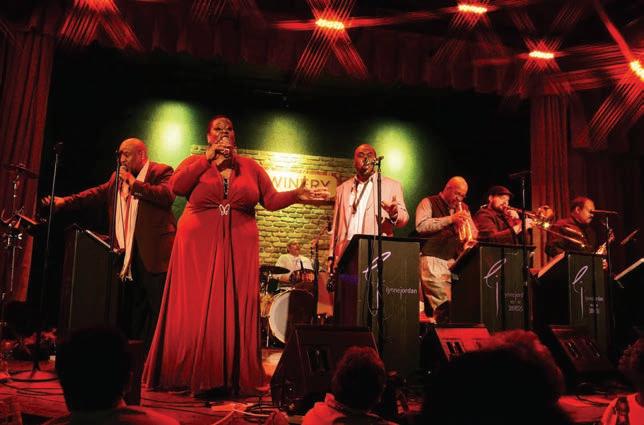
Southern Hospitality 6/19, 8 PM, SPACE, Evanston, postponed until a date to be determined b
Spanish Love Songs, Future Teens, Dollar Signs 7/25, 7 PM, Cobra Lounge, canceled
Lennon Stella, Kevin Garrett 7/11, 7 PM, House of Blues, postponed until a date to be determined b
Thao & the Get Down Stay Down 7/16, 8:30 PM, Thalia Hall, postponed until a date to be determined, 17+
Three Bad Jacks, Bama Lamas 6/27, 7 PM, Reggies’ Music Joint, postponed until a date to be determined
Toastamania X featuring Ghoul, Nunslaughter, Cross Examination, Sanguisugabogg, Texas Toast Chainsaw Massacre, Coffin Rot, Molder, Toxic Ruin, Slutbomb, and more 6/12/21, 4 PM, Reggies’ Rock Club, rescheduled, 17+ Dan Tyminski 6/19, 8 PM, Maurer Hall, Old Town School of Folk Music, postponed until a date to be determined b Kurt Vile, Cate Le Bon 9/8-9/9, 8:30 PM, Thalia Hall, canceled Hayley Williams, Arlo Parks 6/26, 8 PM, House of Blues, postponed until a date to be determined b
UPCOMING
Batu 10/2, 10 PM, Smart Bar Azizi Gibson 12/13, 7 PM, Subterranean b
King Gizzard & the Lizard Wizard 10/29, 7 PM, Radius Chicago, 17+ Gregory Porter, Ledisi 2/17/21, 7 PM, Chicago Theatre b Squarepusher 12/3, 9 PM, Metro, 18+ v
JUNE 11, 2020 - CHICAGO READER 35
Julie Slick 10/16-10/17, 9 PM, Martyrs’
Never miss a show again. Sign up for the newsletter at chicagoreader. com/early
Lynne Jordan & the Shivers COURTESY THE ARTIST
CHICAGO SHOWS YOU SHOULD KNOW ABOUT IN THE WEEKS TO COME b ALL AGES F A furry
ear to the ground of the local music scene
GOSSIP
WOLF BY KEITH HERZIK
OPINION
LOVE
By DAN SAVAGE


Q: Is it a red flag or sign of deeper attachment or commitment issues if your long-term partner never tells you he loves you?
A: I’ve heard people describe relationships that were three months old as “LTRs.” Assuming you’re not one of those people—assuming you’ve been with this guy for more than a year—and you’ve already said “I love you” to him and he hasn’t said it back, well, that’s a bad sign. But I wouldn’t describe it as a red flag. Early warning signs for physical or emotional abuse are red flags; not hearing “I love you” from someone you’d like to hear that from does suck, I know (because I’ve been there), but it’s not a sign that you’re in danger, girl. It’s also not proof your partner has attachment or commitment issues; he just might not be interested in attaching or committing to you. But whatever the case might be, if you’re unhappy being with someone who can’t bring himself to say “I love you” then you shouldn’t be with that person.
Q: Is there a safe way to date/be slutty now? Will there ever be again? I’m poly but live alone so I haven’t had sex in 12 weeks. HELP!

A: While health officials in most places are urging all to only have sex with people we live with—mom and dad excepted—over in the Netherlands health officials are advising single and horny Dutch people to find “sex buddies.” One sex buddy per person, someone you can meet up with for sex,



ideally someone who isn’t interacting with too many other people. If you can find someone you trust—and if you are someone who can be trusted—you could go Dutch.

Q: My fiancé has an ex-girlfriend who just can’t let it go. He’s blocked her on social media but his mother still follows his ex and is friends with her and they interact at least monthly. Likes, comments, etc. Can I address the issue with his mom or is that just somewhere you don’t go?
A: Why are you monitoring your fiancé’s ex-girlfriend’s social media? I mean, if you weren’t lurking on her Instagram, you wouldn’t know your future MIL is liking and commenting on her photos. Your fiancé’s mom is an adult and she can follow anyone she likes on Instagram. And if you don’t want her to think you’re the toxic one, you won’t address this with her. Be the change you wanna see in your fiancé’s ex: let it go.
Q: I’ve always wanted to know more about your history with circumcision.
A: My history with circumcision isn’t that interesting: I was present at one circumcision (my own), I’ve never performed a circumcision (that I recall), and I’ve encountered both circumcised and uncircumcised dicks in the wild (enjoyed them all).

Q: My wife and I are lesbians who just found out we’re having a baby boy! We’re super excited but had some

penis questions. My wife wants to circumcise our son because she says that if he’s uncircumcised he’ll get made fun of in the locker room. Does this happen? How o en do boys look at each other’s dicks growing up?

A: The circumcision rate among newborn boys has been falling for decades and now only a little more than half of all boys are circumcised at birth. So even if boys were comparing their dicks in locker rooms—and they’re not—your son won’t be alone. And for the record: the American Academy of Pediatrics doesn’t recommend the procedure and the supposed health benefits—a lower risk for urinary tract infections and a lower risk for some sexually transmitted infections— aren’t a convincing argument in favor of the routine circumcision of male infants. And while the complication rate is low (1.5 percent), those complications can range from easily treatable infections to “amputation of the glans,” “necrosis of the penis,” and “death.” Risking your son’s life and most important limb to spare him a moment’s awkwardness in a locker room seems unreasonable to me—particularly since your son can’t consent.



Q: My partner wants me (F) to peg him! Hooray! Any advice? He is very hot! Thanks! You rock!
A: He should douche! Plenty of lube! Take it slow! Film it for HUMP!


Q: I’m a bisexual male in




36 CHICAGO READER - JUNE 11, 2020 ll
SAVAGE
On lurking and sex buddies during a pandemic Answers to quickies in quarantine
the cannabis platform a Reader resource for the canna curious nuMed.com | 1308 W. North Ave Chicago’s friendliest cannabis shop Thursdays on Cannabis Conversations chicagoreader.com/joravsky Cannabis Conversations chicagoreader.com/ joravsky To advertise, call 312-392-2934 or email ads@chicagoreader.com www.neuromedici.com 312-772-2313 Findouttoday ifmedical cannabisorinfusiontherapyis rightforyou.Telemedavailable! Yourpartnersinhealthandwellness. Serving medical cannabis patients since 2015. An Essential Calm. Day or Night. Whole-plant hemp formulations for peace of mind and body. mineralhealth.co GET INVOLVED! chicagoreader.com/420book The Reader 420 Companion is filled with great recipes, activities and coloring pages Your purchase supports the Reader. 15% of the proceeds will be donated to the Chicago Coalition for the Homeless.
OPINION
California. When is the right time to tell someone I just started dating that I’m bisexual? And how?
A: Mention your bisexuality on dating apps—which is where most couples meet these days—and you won’t have to tell someone you’re bisexual a er you’ve started dating them. If you meet someone the old-fashioned way (school, work, through friends), tell ’em right away. It’s nothing you should be ashamed of or have to roll out carefully. And being with someone who can’t embrace and celebrate your sexuality is bad for your mental health; the more out you are about being bi, the lower your odds of winding up with someone who has a problem with it. It ups your odds of winding up with someone who fetishizes your bisexuality, of course, but if you had to choose between a partner who disapproves (and polices) and a partner who drools (and wants to watch), you’re gonna be way better off with the droolers.
Q: Cis poly woman here. My quarantine sexpod contains me and my two male partners. We’ll call them A and B. My partner B has another female partner that we’ll call C. Since we’re already “connected” anyway, would it change anything for me to have a threesome with B and C?

A: If B is fucking C and then coming home and fucking you and then you’re running down the hall to A, then C is essentially already in your sexpod. The bigger your sexpod, the more people you’re in contact with, the greater your risk of contracting and/or spreading COVID-19. Ideally C would move in with you and A and B if you’re all going to be fucking each other. But not having a threesome with B
and C while B is out there fucking C won’t protect you and A from whatever B might bring home from C.
Q: Gay Black male from NYC here. Two months ago I lost my partner of 17 years to COVID-19. I have a pretty strong support system but it’s really hitting me hard right now because my partner was very politically active and supportive of the struggles of Black and Brown people. I’ve been in therapy but any suggestions or resources for how to deal with such a loss in the midst of all this chaos?

A: I’m so sorry for your loss—and I apologize for not spotting your question during the show. I’m glad you have a strong support system and that you’re working with a therapist. If you need more support, your therapist should be able to refer you to an online grief support group. And I’ll just add . . . grief isn’t something we “deal with” and then we’re done. It’s something we carry with us. And in my experience time doesn’t lighten the load. Still, the longer we walk with it, the stronger we get, and the lighter it feels. My heart goes out to you.
Q: Longtime listener and magnum subscriber! We will keep this short: We are in a happy monogamish marriage and have heard one is not supposed to share toys under any circumstances. What are your thoughts on this?
A: One shouldn’t share a toy one hasn’t cleaned—and one should make sure one’s toys aren’t made of porous materials that are hard or impossible to clean. But if one has, say, a silicone toy that can be run through a dishwasher, well, one can share that toy. A fluid-bonded couple can safely share toys
during sex, of course, so long as toys aren’t going from assholes to vaginas between cleanings. You also shouldn’t put a dildo in your spouse and then turn and stick it in your very special guest star. But if you obey those simple rules—clean toys, no ass-tovag, no used toys in thirds or toys used by thirds in primaries—it’s safe to share your toys.

Q: I’m a 25-year-old lesbian trans woman in Chicago. I had a long video chat two weeks ago with a woman I met at the Chicago Age Players Convention—think International Mr. Leather but for Adult Babies/Diaper Lovers—and we really hit it off. It felt like we were about to pull a U-Haul despite being in quarantine. We even discussed a visit. But since then I haven’t heard from her. I’ve tried texting and calling. My question is what should I do? How can we reconnect?
A: You can’t reconnect if she isn’t interested in reconnecting. I know that sucks, but you’ve already done everything you can— you texted, you called. She knows you’re still interested and you have to accept that you’ll hear only if she wants to reconnect. Hopefully nothing’s wrong and she’s safe. I don’t think ghosting is ever nice but a lot of people are struggling right now and some people who wouldn’t normally ghost are ghosting.
If she offers you an apology when she reaches out to you again—if she reaches out to you again—don’t hold the ghosting against her. If you never hear from her again, well, then she wasn’t who you hoped she was. v
Send letters to mail@ savagelove.net. Download the Savage Lovecast at savagelovecast.com.
@fakedansavage
JUNE 11, 2020 - CHICAGO READER 37
LD Rates Apply 18+(726-8437) (242-8669) 726-8437 242-8669 Find hundreds of Reader-recommended restaurants at chicagoreader.com/food. Chicago's Free Weekly Since 1971 We Couldn't Be Free Without You— Support Community Journalism chicagoreader.com/donate
CLASSIFIEDS
JOBS GENERAL
The University of Illinois at Urbana-Champaign seeks a Management Engineer in the Utilities and Energy Services Division of University Facilities and Services in Champaign, Illinois. Duties: Provide engineering management for the safe, reliable and cost-efficient operation of the utility production and distribution systems.
maintenance & education regarding assistive technology.
JOBS ADMINISTRATIVE
& MARKETING
& DRINK
& SALONS
JOBS GENERAL REAL ESTATE
SALE
MARKETPLACE
SERVICES
& WELLNESS
&
Major duties and responsibilities include: perform consistently with the vision, mission, values, and guiding principles established by facilities & services; supervise personnel including crafts and trades, establishing work priorities, recommending budget priorities, and adherence to established budget. Supervision duties include supervising electrician shop 25 foreman. Develop and maintain effective working relationships with university, campus, and departmental officials/ staff to promote the success of established university and facilities and services objectives and goals; other related duties or projects as assigned by the director of Utilities and Energy Services. Fulltime. Requirements: Bachelor’s degree in Mechanical Engineering, Electrical Engineering, or related. Three (3) years’ experience as a project engineer, associate engineer or related. Experience must include: working in a utility industry; managing & supporting electrical utility projects, working with electrical systems, transmission and distribution systems, transmission and distribution engineering projects, working with electrical one line diagrams and documentations.
Registration or eligibility for registration as a professional engineer in Illinois. To apply: Send letter of application and resume to: Keri Frederick, University of Illinois at Urbana-Champaign, Facilities and Services, 1501 S. Oak Street, Champaign, IL 61820.
The University of Illinois at Urbana-Champaign is an affirmative action/equal opportunity employer.
The Department of Disability & Human Development at the University of Illinois at Chicago , located in a large metropolitan area, is seeking a full-time Assistive Technology Specialist to assist department with research, development,
Conduct presentations & demonstrations to educate individuals with disabilities on topics such as maintenance of assistive technology equipment, access methods, assistive technology funding policies, costs, & options of assistive technology that are available to maximize independence. Assess the abilities of these individuals in their home, school, or work environment to determine the most appropriate equipment options to overcome barriers to their independence goals, specifically with computer access technology.
Evaluate for the most appropriate combination of assistive technology.
Maintain knowledge of computers, adaptive hardware and software, tablets, smartphones, and applications for individuals with disabilities. Develop custom devices or design modifications to existing equipment, obtain prior approval from appropriate funding agencies, provide any necessary follow-up services. Regular travel to client home, school, & work locations required.
Travel to conferences & professional development opportunities may also be required. Requires a bachelor’s degree in Bioengineering, Occupational Therapy, or related field, or its foreign equivalent. For fullest consideration, submit a CV, cover letter, and 3 references to the attention of the Search Coordinator via email at khaasen@ uic.edu. The University of Illinois is an Equal Opportunity, Affirmative Action employer.
Minorities, women, veterans and individuals with disabilities are encouraged to apply.
The University of Illinois may conduct background checks on all job candidates upon acceptance of a contingent offer.
Background checks will be performed in compliance with the Fair Credit Reporting Act.
TransUnion, Interactive Inc., a wholly owned subsidiary of TransUnion LLC seeks Lead Engineers for Chicago, IL location to create web enabled sw solutions.
Master’s in Comp Sci/ Comp Apps/Comp Eng/ any Eng field+7yrs exp OR Bachelor’s in Comp Sci/ Comp Apps/Comp Eng/any Eng field + 10yrs exp req’d. Req’d Skills: sw design exp w/Java (upgrade & security), J2EE, Web Services, XML, XSD, SAML, EJB, JPA,
Linux, Weblogic, Wildfly, design patterns, CI/ CD, Maven, Node, Gulp, NPM, Jenkins, Nexus, Docker, Agile (Scrum, SAFe), Jira, UML, BPMN, Oracle, Junit, SVN, CVS, RSA encryption/ decryption, publicprivate key, HTTPS, SSL, TLS, AbInitio, Grafana, Google Analytics, Spotfire, Splunk, IntelliJ Idea, DbVisualizer. 20% telecommuting permitted. Send resume to: R. Harvey, REF: RB, 555 W Adams, Chicago, IL 60661
Zurich (Chicago, IL) seeks Manager Field Operations (Risk Engineering) to manage a team of professional Risk Engineers/ Consultants in provision of risk assessment & risk improvement services for customers & business partners. Must be willing to travel w/in the U.S., including headquarters in Schaumburg, IL, & work extended hours during peak periods. Option to work remotely. Apply at Zurichna.com/en/careers, Job ID: 20000397
Loyola University Chicago is seeking a Professor of Philosophy in Chicago, IL to Teach seminars for grad students in Ph.D. Program. Plse send resume to Mwaymac@luc. edu & ref job 052866.
Arthur J. Gallagher Service Company, LLC in Chicago, IL seeks an ETL Architect to design & develop solutions to support reporting, analytic, & warehouse needs. Reqs. MS+2 or BS+5yrs exp.; Mail resume to: Attn: HR (000247), 2850 Golf Rd., Rolling Meadows, IL 60008. Must Ref Job Title: ETL Architect. EOE.
Wi-Tronix LLC- Product Owner (Arch & Eng Mangr) – Bolingbrook, IL - Resp to codify vision for cust-centric prod, defing customized prod req. & prioritizing the backlog to ensure highvalue prod features are delvrd to cust. Customer Prod Mngt 35% - Initiate coll inno w/& thrgh cust input; Lead & facilte elect prod inno meetgs w/cust advotes. Prod Req Mngt 35% Wrk to scope & define prod reqs, ensuring reqs prov high value & meet cust & indtry inno needs; Backlog Mngt 30% - Res for optimizing Agile team’s efftivness; Defne & prioritize prod backlog. REQS: BS deg in Elec Eng, Comp Eng or similar reltd field w/5 yrs prog exp. In lieu of BS+5 yrs exp will accept MS in same fields +3 yrs progexp. Skills: Must have the following
skills gained thro exp or crsewrk/certifin:- Object Oriented programming C++; -Agile sft dev framework scrum; -Proj Mngt Tools (specif Trello & Git); -Prod Mngt, Prod Owner Training or Sft Prod Mngt Cert; - SAFe Prod Owner or Prod Mangr Cert or similar. **Will accept suitable combo of edu, training, & exp. ***Intl & dom travel req 5-10%. Send resumes careers@ wi-tronix.Com, Attn: M. Oster-Polen, Wi-Tronix, LLC, 631 E Boughton Rd, Suite 240, Bolingbrook, IL, 60440. No calls.
Business Analyst Encore Consulting Services, Inc. IL-based IT Solutions company, has multiple openings for Business Analyst (for locations nationwide): Recommend, plan, and execute integrated system solutions for complex projects. Responsibilities include: Be engaged in all stages of the software development life cycle (SDLC) to ensure compliance to Project Specifications. Req: U.S. Master’s dgr in C.Sci, CIS, IT or rltd +2 yrs exp. Mail resume to Encore Consulting Services, Inc., Attn HR, 1701 E Woodfield Road, STE 910, Schaumburg, IL 60173. Travel and relocation possible to various unanticipated client locations throughout the U.S.
Vertex Consulting Services Inc. in Schaumburg, IL is seek’g A) Network Administrators to instl, config., support orgztn’s LAN, WAN, & Internet systems. B) Appian Developers to transl. biz process sftwre reqs specs into Appian process model prototypes & solut’ns. C) Sr Database Administrators to anlyze, dvlp & maintain database infra., systms & progs. No trvl; No telecom. Job duties are proj-based @ unanticipated sites w/in U.S. Relo may be req’d @ proj end. Mail resumes to: Vertex Consulting Services, Inc., Attn: HR, 935 N. Plum Grove Rd., Ste. D, Schaumburg, IL 60173.
TransUnion, LLC seeks Sr. Engineers for various & unanticipated worksites throughout the U.S. (HQ: Chicago, IL) to support the overall design, strategy, & delivery of info security infrastructure & Privileged Access Mgmt. Master’s in Info Tech/Comp Eng/ related field+2yrs exp OR Bachelor’s in Info Tech/Comp Eng/related field+5yrs exp req’d. Req’d Skills: Info security exp focusing in Identity & Access Mgmt (Sailpoint Identity IQ, on-boarding,
terminations, access requests, approvals, attestations/certifications, beanshell scripting), PAM (BeyondTrust PPM, CyberArk), Active Directory, LDAP, JAVA, Python, REST Web services, PowerShell, beanshell, C#; cloud environments (IaaS, PaaS, SaaS), Azure AD integrations, microservices ar chitectures, Agile. Willing to be on call 24x7 rotation. 100% telecommuting permitted. Send resume to: R. Harvey, REF: SB, 555 W Adams, Chicago, IL 60661
TransUnion, LLC seeks Vice Presidents-Market Strategy for Chicago, IL location to manage team to create & execute strategic plan, identify & dev growth initiatives validated through market intelligence. MBA+2yrs exp OR BBA+ 5yrs exp req’d. Skills Req’d: design & conduct market research, incl primary research on products & companies identify market opportunities; dev strategy projects, dev & apply quantitative methodologies to dev market sizing, customer segmentation; dev & present compelling client-facing strategy concepts in an easy to understand way, incl building storylines & communicating presentations through PPT, to both internal & external customers, as well as to business partners; exp w/business financials and P&L; dev & execute pricing strategies for products & solutions; competitive analysis of products & services of current & potential competitors & partners; conduct due diligence, valuation of companies, & eval of M&A opportunities; manage & execute complex cross-functional projects; manage client relationships; build complex & dynamic company valuation models with Excel; work w/Business & IT teams to design & implement Agile dev methodologies. Travel to client sites as needed. Send resume to: R. Harvey, REF: SG, 555 W Adams, Chicago, IL 60661
(Forest Park, IL) Conservation of Sculpture & Objects Studio, Inc. seeks Conservation Technician w/ Bach or for deg equiv in Conserv, Archit, Historic Preserv, Preserv Plan or rltd fld & 2 yrs exp in job offered or as Proj Mngr incl 1 yr w/ assess, conserv & restor of histor bldgs or mater, objec or struct; writing prop descrip, histor narrat,
signif stmnts & assist w/ preserv & conserv plans; & Complet of Ind Laser Safety Trng. Freq dom trvl reqd. Apply to HR, 900 S. Des Plaines Ave, Forest Park, IL 60130
(Rosemont, IL) Metal One America, Inc. seeks Steel Trade Purchasing Specialist w/ Bach or for deg equiv in Bus, Econ or rltd fld & 3 yrs exp in position offered or in intl commod trad incl exp in trade negot for commod; selling & purch commod in intl mrkts; coord commod mater flows from intl suppliers; know of incoterms; commod mrkt & stat anal; & commod mrkt res. Apply to S. Wilson, 6250 N. River Road, Ste 2055, Rosemont, IL 60018
TransUnion, LLC seeks Consultants for Chicago, IL location to develop & evaluate credit risk management analytic solutions. Master’s in Operations Research/ Industrial & Systems Eng./ related Quantitative field + 2yrs exp. or Bachelor’s in Operations Research/ Industrial & Systems Eng./related Quantitative field + 5yrs exp. req’d. Req’d skills: statistical modeling & data analysis in financial services, R, SAS, SQL, Hive, Python, C, C++, VBA, HUE, feature eng., data visualization; performing data sampling, data cleaning & preparation; Hadoop, Command Line Interface, Predictive modelling, machine learning; Gurobi; linear & non-linear optimization. 5% telecommuting permitted. Send resume to: R. Harvey, REF: RRH, 555 W Adams, Chicago, IL 60661
QuesTek Innovations LLC seeks Sr. Materials Design Engineers for Evanston, IL to independently design & invent new materials. Master’s in Materials Sci/Materials Eng/ related field+2yrs exp req’d. Req’d Skills: materials engineer & design exp w/ ICME design tools; CALPHADbased thermodynamic & kinetic software (ThermoCalc; DICTRA; PRISMA software); Linux, Unix, BASH, C++, Python; legacy code/ scripts; Minitab; iSight; PrecipiCalc; MATLAB; ABAQUS; ANOVA; VASP; PWSCF; FEM simulations. 10% travel req’d. Send resume to: P. Kotaru Ref: AS 1820 Ridge Ave. Evanston, IL 60201.
Hyatt Corporation seeks a Senior Full Stack Developer in Chicago, IL responsible for architecture, methodology, tools, and
processes, and delivery management for the development and support of Hyatt.com, mobile apps, and new apps created in an internal startup environment BS & 5 yrs or MS &3 yrs. For full req’s and to apply: Submit cover letter and resume to: Hyatt Corporation, Attn: Jin Ivacic 150 N Riverside Plaza, Floor 14, Chicago, IL 60606
Job Reference Number: CHI010501
MARKETPLACE
ADULT SERVICES
Danielle’s Lip Service, Erotic Phone Chat. 24/7. Must be 21+. Credit/ Debit Cards Accepted. All Fetishes and Fantasies Are Welcomed. Personal, Private and Discrete. 773-935-4995
LEGAL NOTICE
This letter is to notify that on June 25, 2020 at 9:30 a.m. an auction will be held at 83rd & Halsted Self Storage, Inc., located at 8316 S. Birkhoff Ave, Chicago, IL 60620, to sell the following articles held within said storage units to enforce a lien existing under the laws of the state of Illinois.
303 Emma Brown
This letter is to notify that on June 25, 2020 at 9:30 a.m. an auction will be held at Hyde Park Self Storage, Inc., located at 5155 S. Cottage Grove Ave, Chicago, IL 60615, to sell the following articles held within said storage units to enforce a lien existing under the laws of the state of Illinois.
519 Shelley H. Anderson
Michael Hicks
Diane Silverman
Alexis Brown
482 Shelley H. Anderson
450 Shelley H. Anderson
524 Maavi Norman
010 Chisato Hotta
339 Daniela Comprindo
456 Shelley H. Anderson
534 Shelley H. Anderson
447 Diane Silverman
26 Narzell Richardson Jr.
408A Ronald Scruggs
This letter is to notify that on June 25, 2020 at 9:30 a.m. an auction will be held at South Shore Self Storage, Inc., located at 7843 S. Exchange Ave, Chicago, IL 60649, to sell the following articles held within said storage units to enforce a lien existing under the laws of the state of Illinois.
580 Albert Cameron
452 Jalisa Dawson
Breanne Faber
Jess Gill
N022 Kenyatte Morgan
Robert Johnson
NOTICES
38 CHICAGO READER - JUNE 11, 2020 ll
SALES
FOOD
SPAS
BIKE
RENTALS FOR
NON-RESIDENTIAL ROOMATES
GOODS
HEALTH
INSTRUCTION MUSIC
ARTS NOTICES MESSAGES LEGAL
ADULT SERVICES
208A
470
10174
317
328
339
WANT TO ADD A LISTING TO OUR CLASSIFIEDS? E-mail classified-ads@chicagoreader.com with details or call (312) 392-2970








































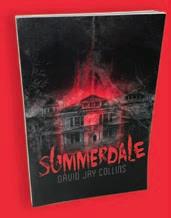
JUNE 11, 2020 - CHICAGO READER 39 FINANCING AVAILABLE Licensed, Bonded & Insured—IL Roofing Lic. #104.013526 For 40 years, 30,000+ satisfied customers have trusted Second City. • ROOFING • BRICKWORK • GARAGES SHINGLE ROOFS NEW GARAGESFLAT ROOFS ROOFING, GUTTERS & MORE the platform The Chicago Reader Guide to Business and Professional Services www.herreralandscapes.com llllllllllllllllllllllllllllllllllllllllllllllllllllllllllllllllllWe bring your outdoor vision to life! DISCOVER YOUR BLISS www.intimate-bliss.com *WARNING: Must be 18 years or older to visit website and/or place order. To advertise, call 312-392-2934 or email ads@chicagoreader.com SAVE BIG ON A NEW HVAC SYSTEM FINANCING AVAILABLE CREDIT CARS ACCEPTED Up to $2,500 savings for a limited time! Call today for a free estimate! 773-895-2797 | www.MironHVAC.com -Energy Efficient -Innovative comfort features -Great maintenance contracts -24-Hr Emergency Service Psychic ReadingsPalm and Tarot If you are worried, troubled, sick or unhappy through love, business, marriage, luck or whatever your problem may be, I have reunited the separated, healed the sick and help many people with money problems. Whereothershavefailed.Ihave succeeded. I will not ask what you came in for. I will tell you. (773)-540-5037 1222 E 47th St She guarantees to help you. No problem is too big for her COLLABO TIVE PREMARITAL FAMILY DIVORCE MEDIATION Brigi e Schmidt Bell, P.C. Phone and Video Consultations. Call today. BrigitteBell.com Lawyers@bsbpc.com | 312-360-1124 travel home improvement psychic real estate advertising books romance legalfuneral services entertainment sales@desktoppers.com Alpina Manufacturing, Chicago, IL 1-800-915-2828 773-202-8887 Visit our website or call us for info: desktoppers.com American Owned American Made Custom cut Acrylic desk or table tops Instead of glass, we can Laser cut beautifully protective Acrylic tops We Offer Quality Affordable • At Need Funeral Services • Pre-Planned Funeral Services • Traditional Funeral/Cremation Services • Direct Cremation/Direct Burial • Memorial Services • Specializing in Veterans Services 773-956-4000 5112 S. Western Ave | Chicago, IL 60609 “Let all that you do be done in love” - 1 Cor 16:14 www.GraceAndMercyFS.biz Serving Chicagoland and NW Indiana GraceMercyFS_Reader_033120.indd 1 4/2/20 10:10 AM YOUR AD HERE LGBTQ Horror Set in Andersonville • Paperback • ebook BY LOCAL AUTHOR DAVID JAY COLLINS SUMMERDALE


: Chicago Cooks at Home and drinks! ^ $30 PDF download I $55 printed copy + PDF chicagoreader.com/recipebook The Chicago Reader, like so many food and beverage professionals, is facing a devastating blow to our finances during this COVID-19 crisis. In response, we teamed up with the city’s best chefs and bartenders to give you their stay-at-home staples. Fi een percent of the profits will go to the Comp Tab Relief Fund, a project created to provide financial assistance to any and all service workers who need it.

 BY MAYA DUKMASOVA
BY MAYA DUKMASOVA















































 By BEN JORAVSKY
By BEN JORAVSKY






































































 @DeannaIsaacs
The entrance arch at Chicago’s oldest college
@DeannaIsaacs
The entrance arch at Chicago’s oldest college




















 By MARISSA DE LA CERDA
By MARISSA DE LA CERDA







































































































































































































































